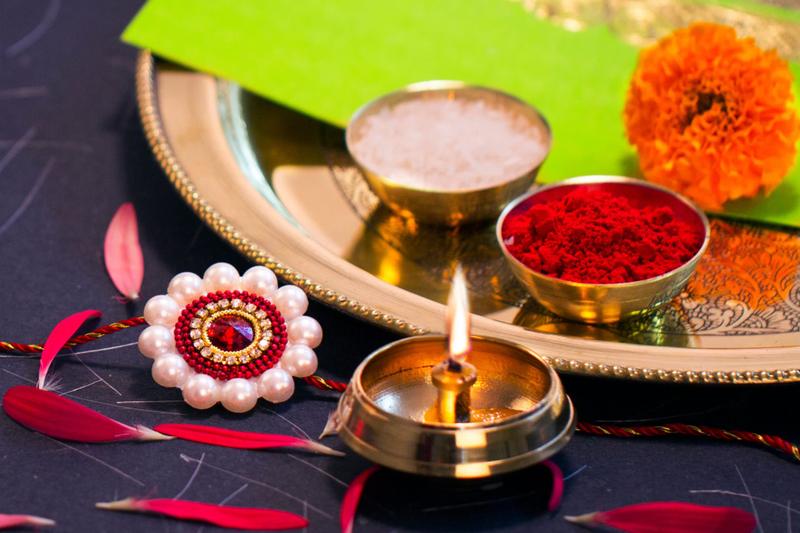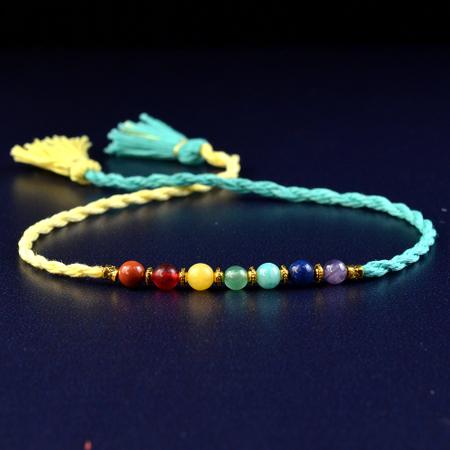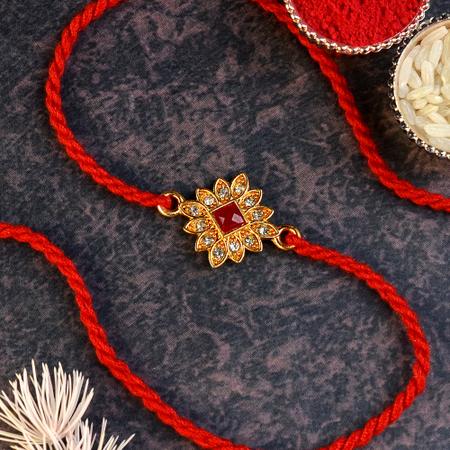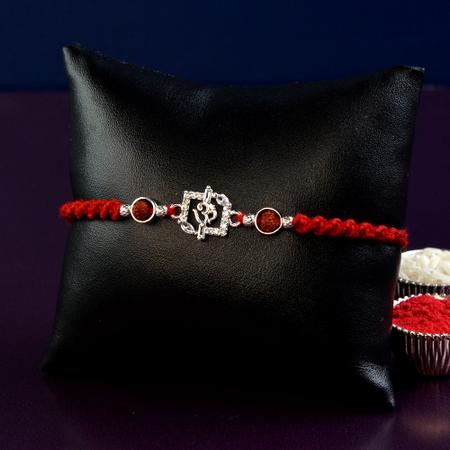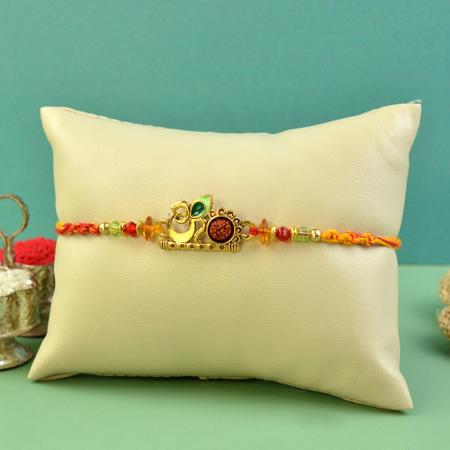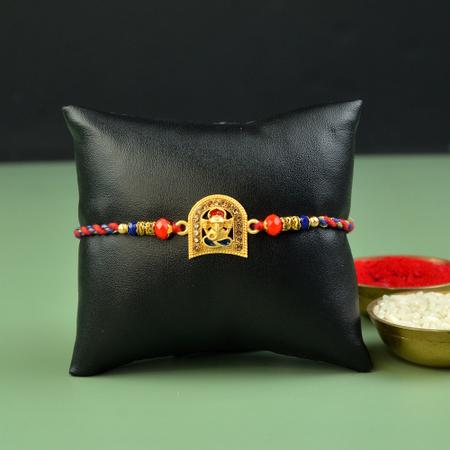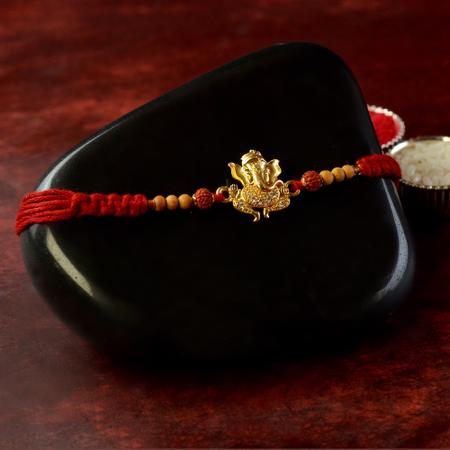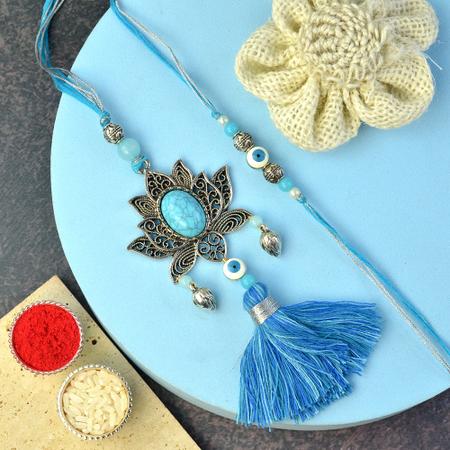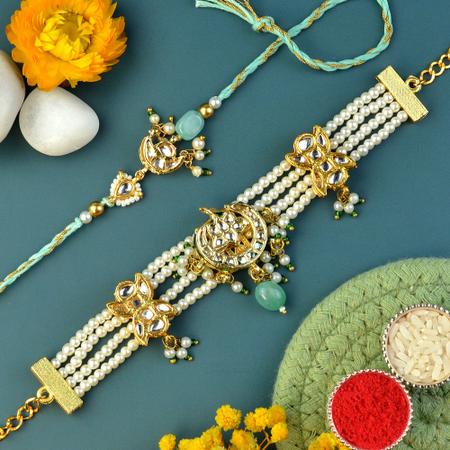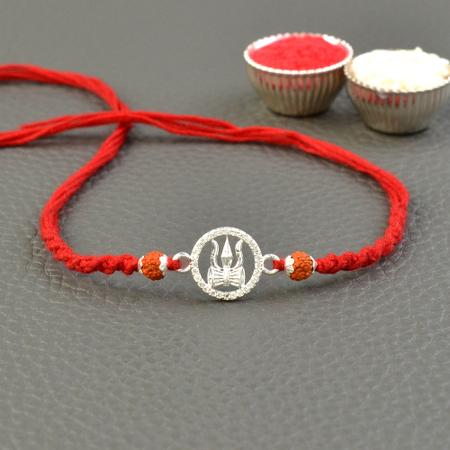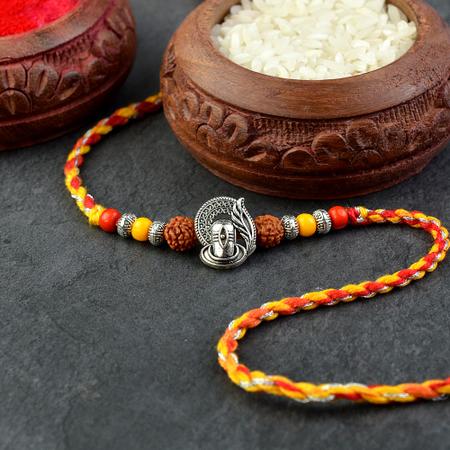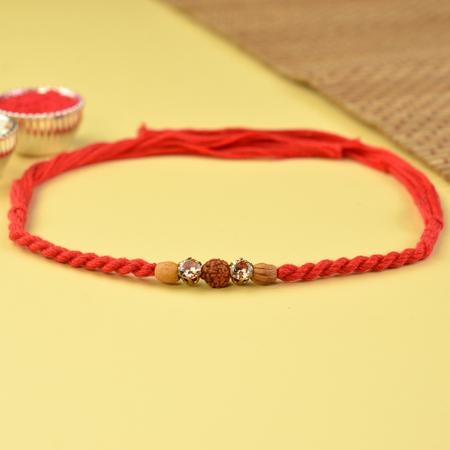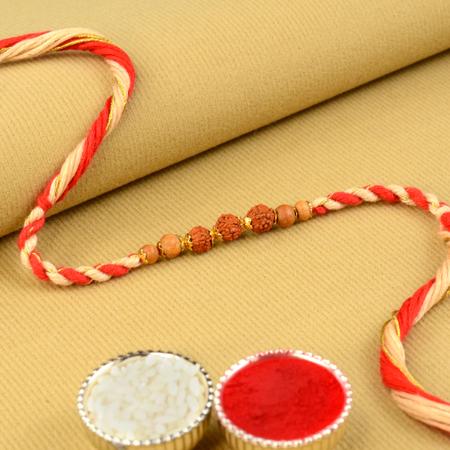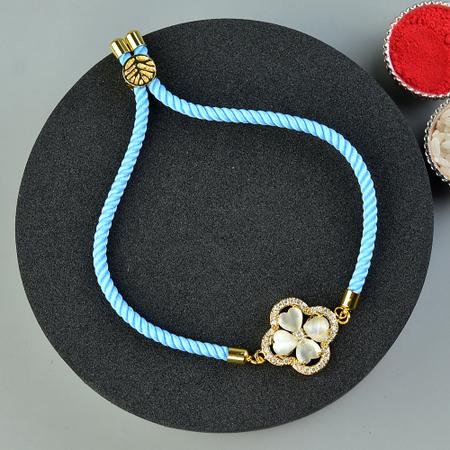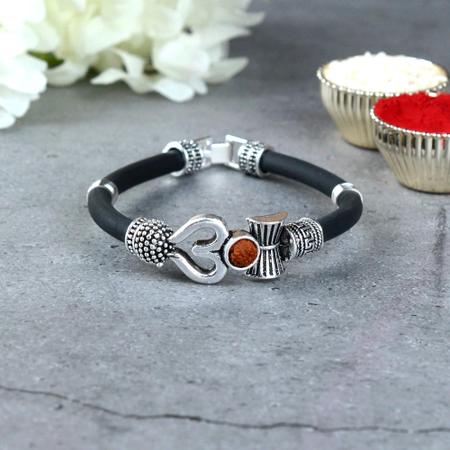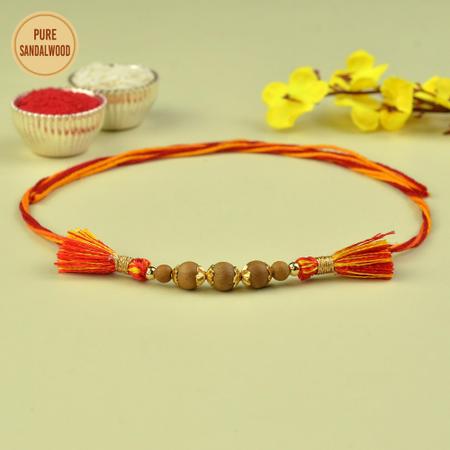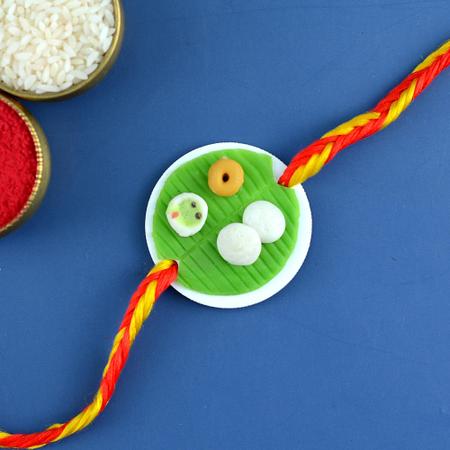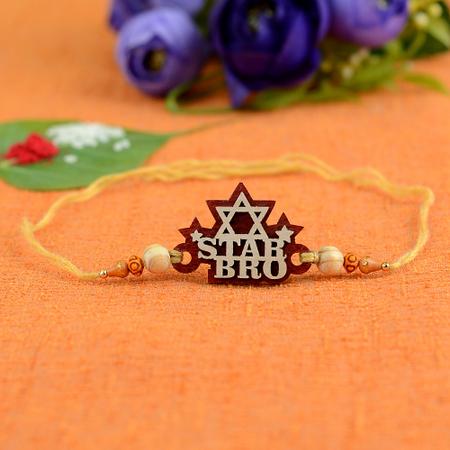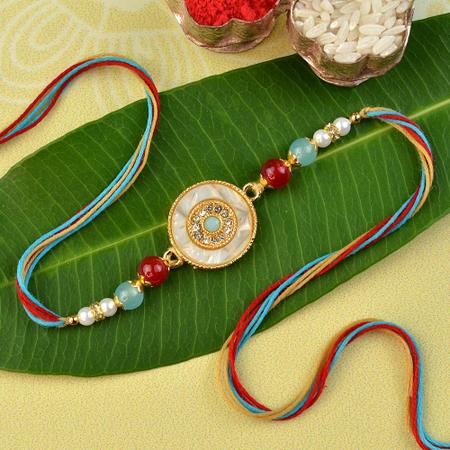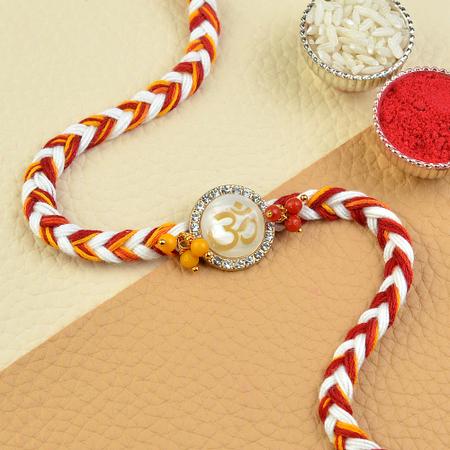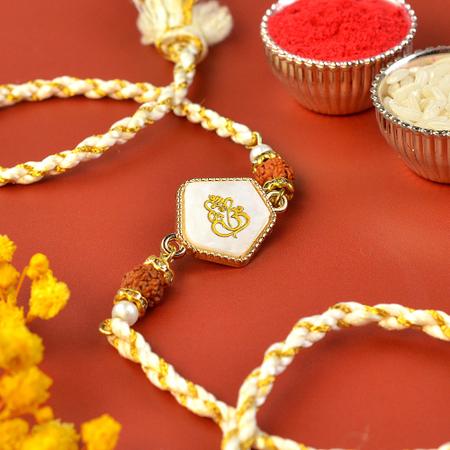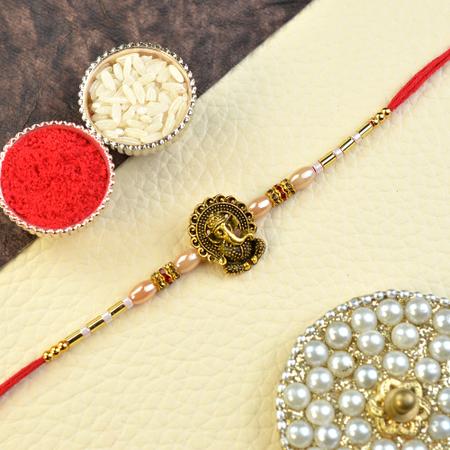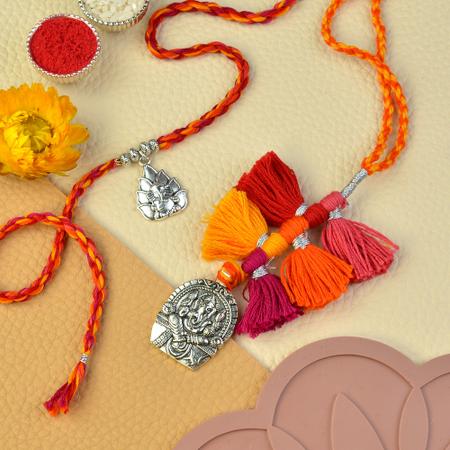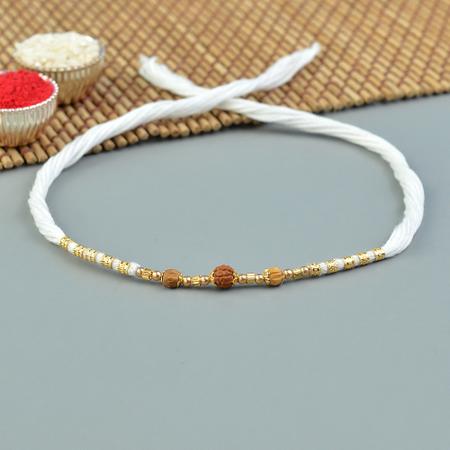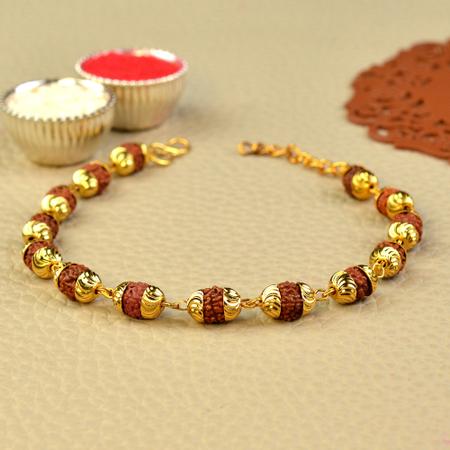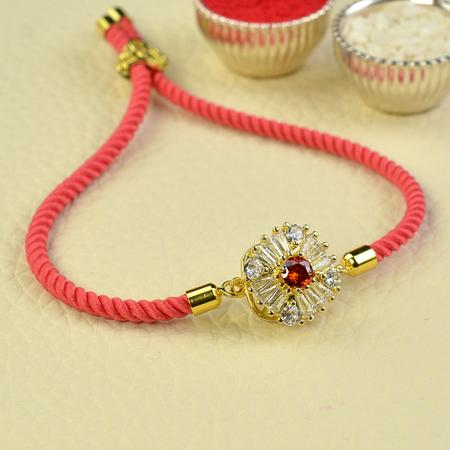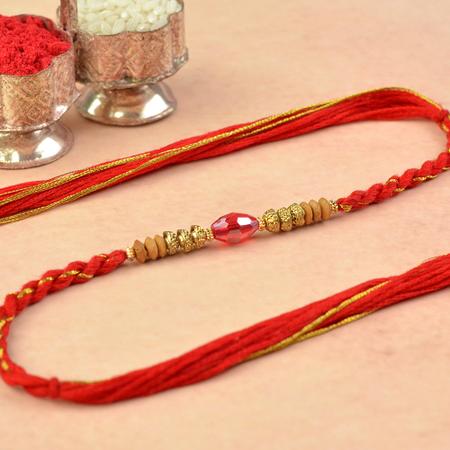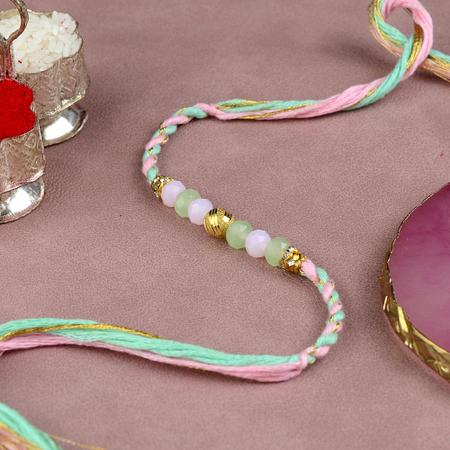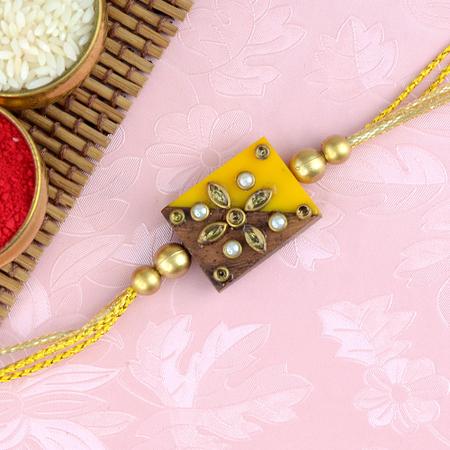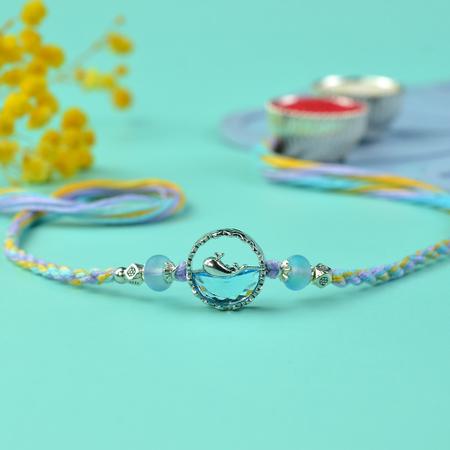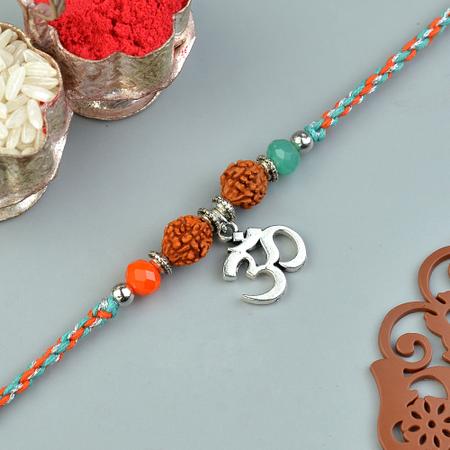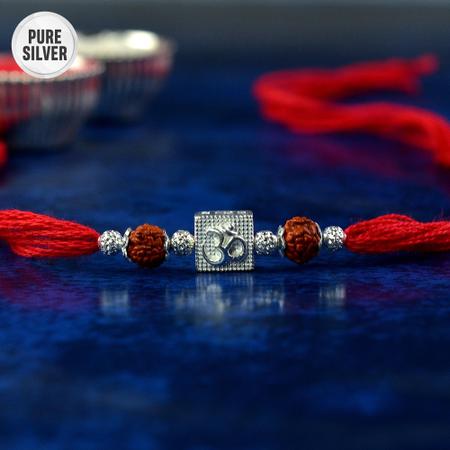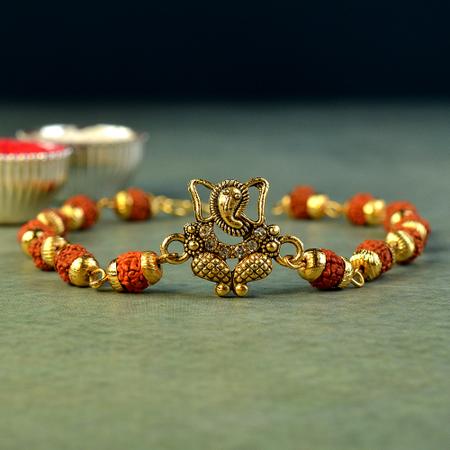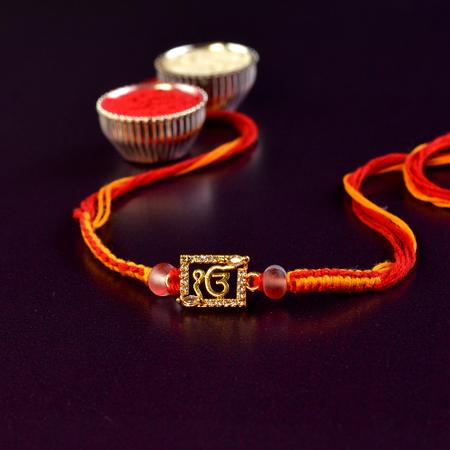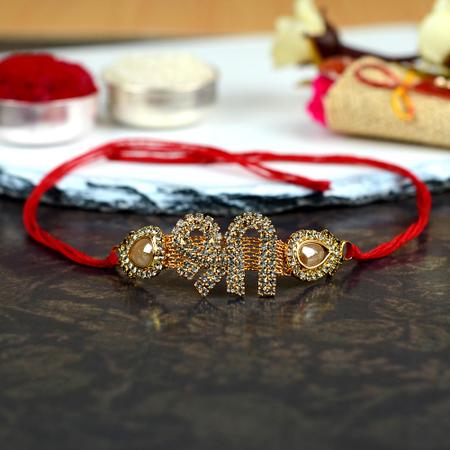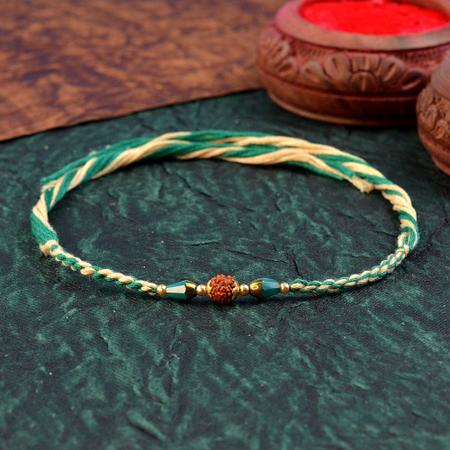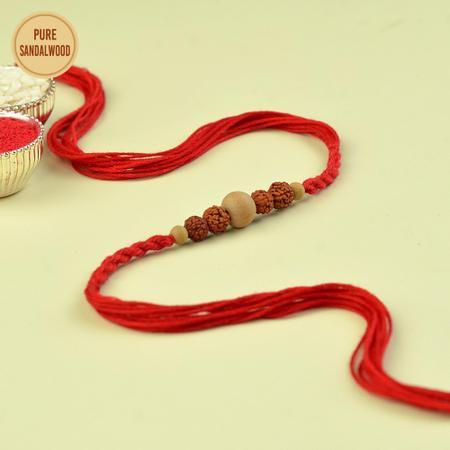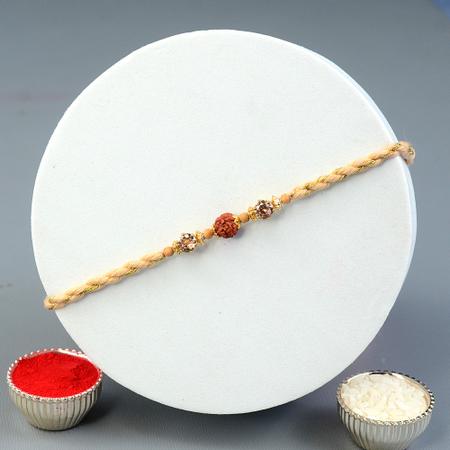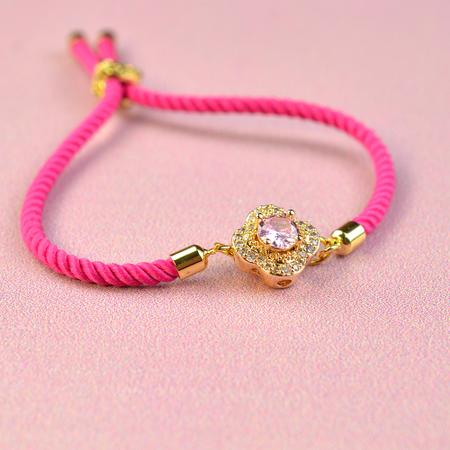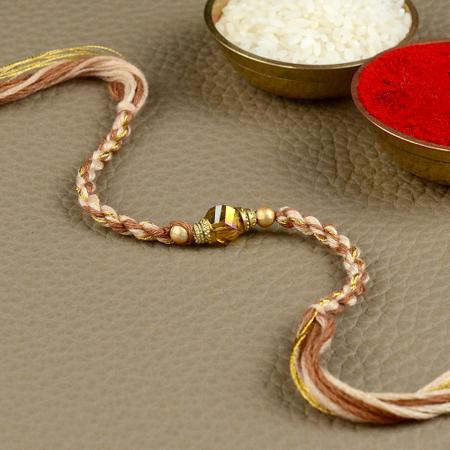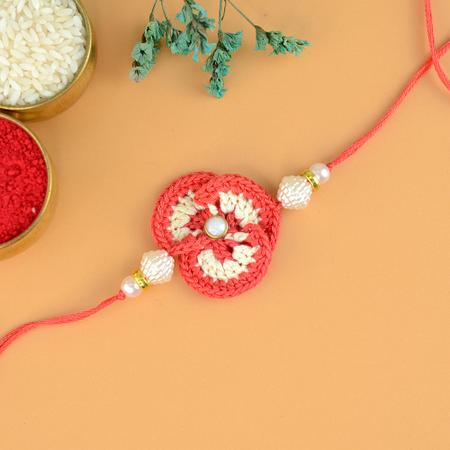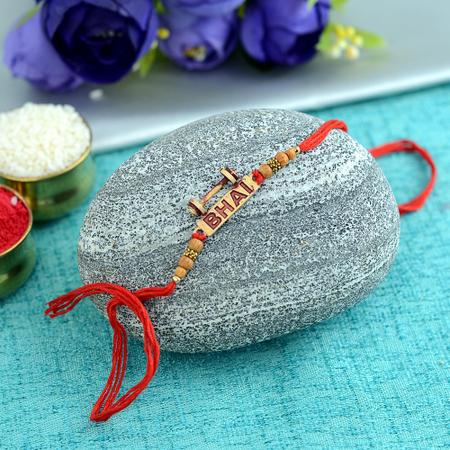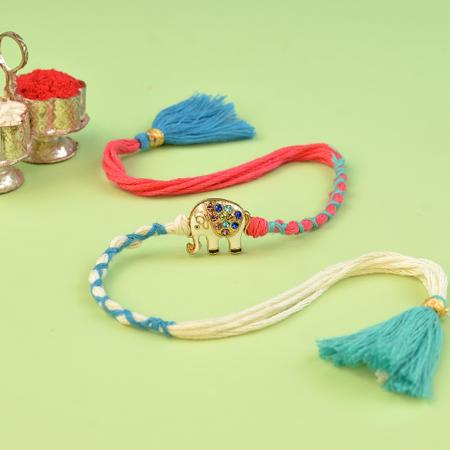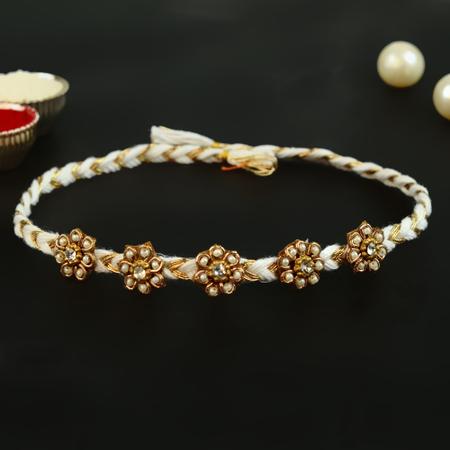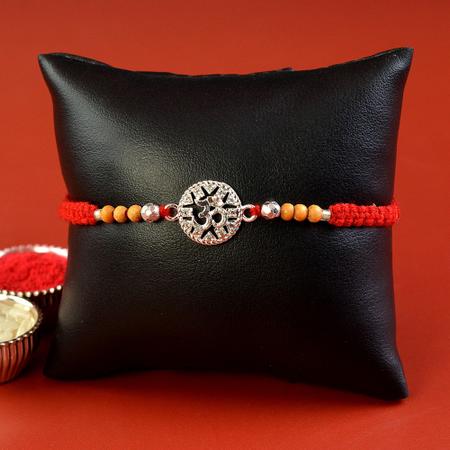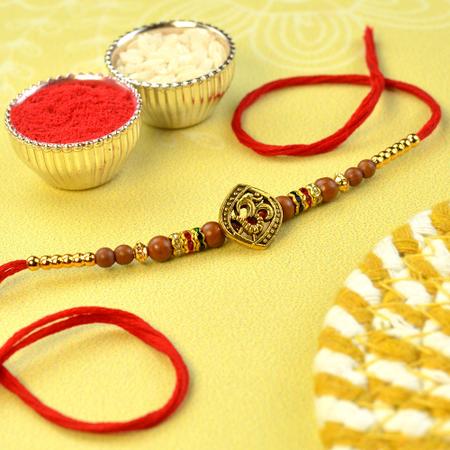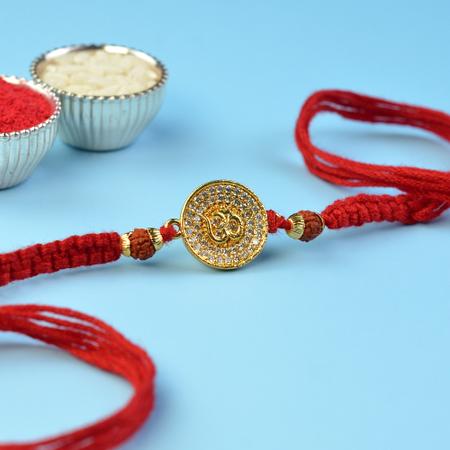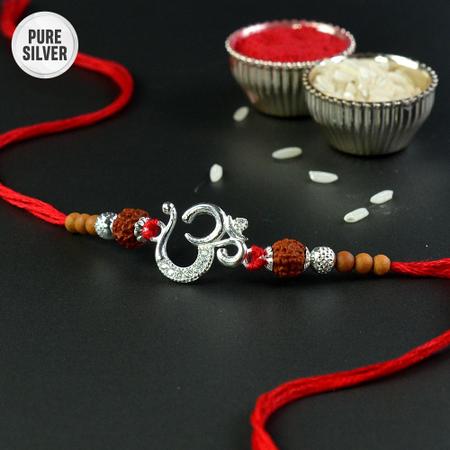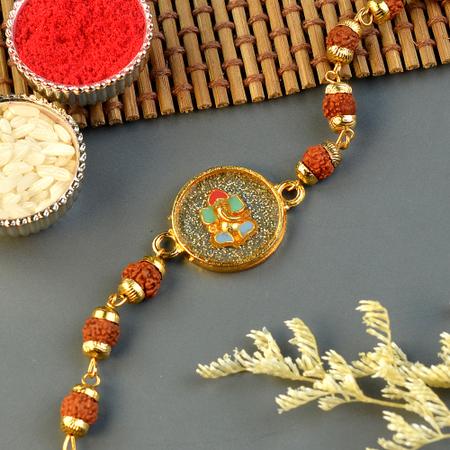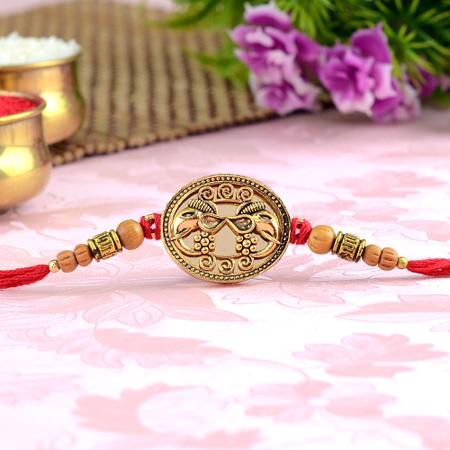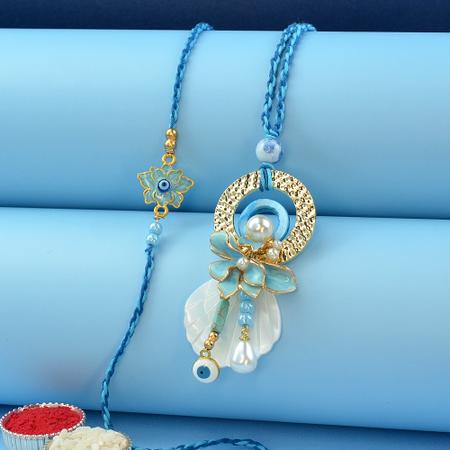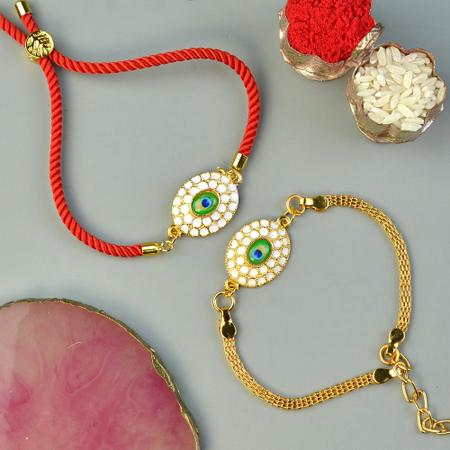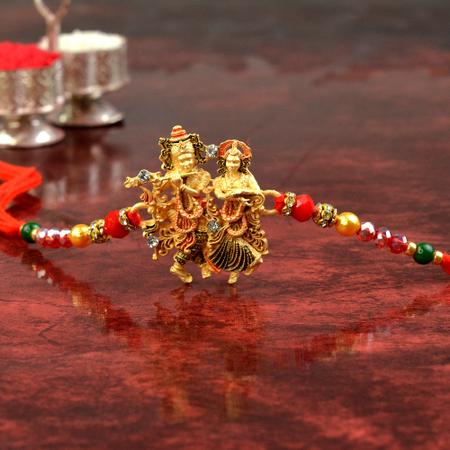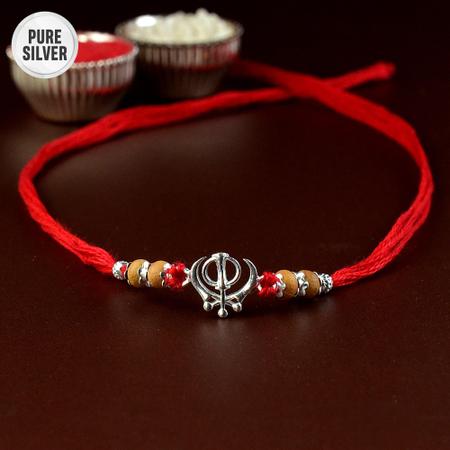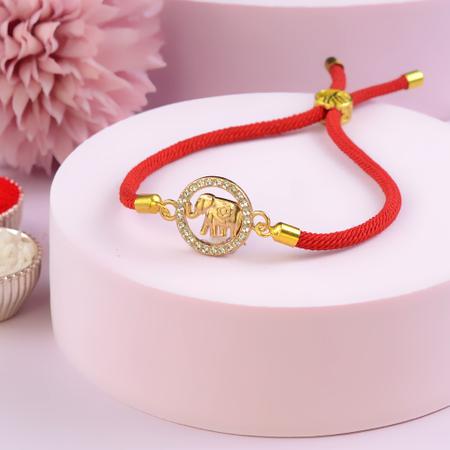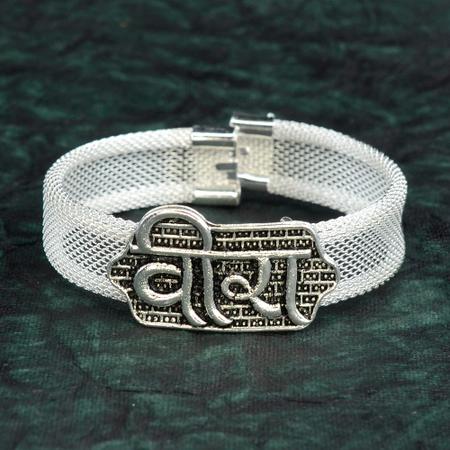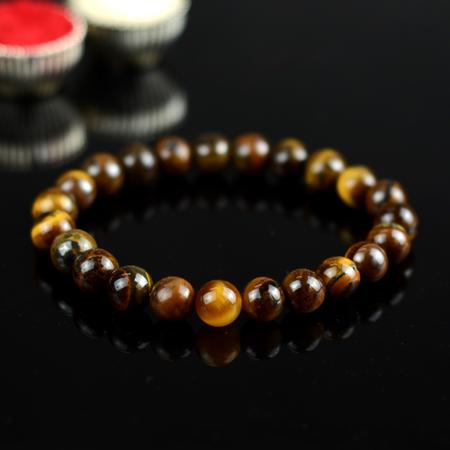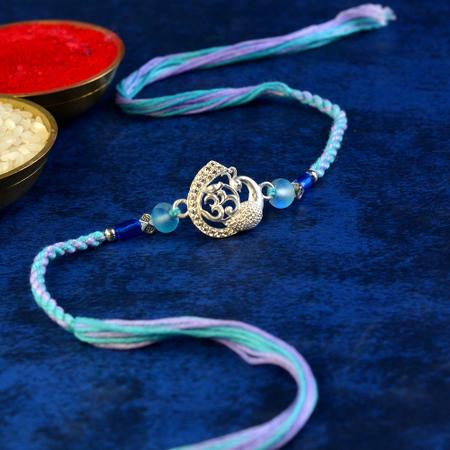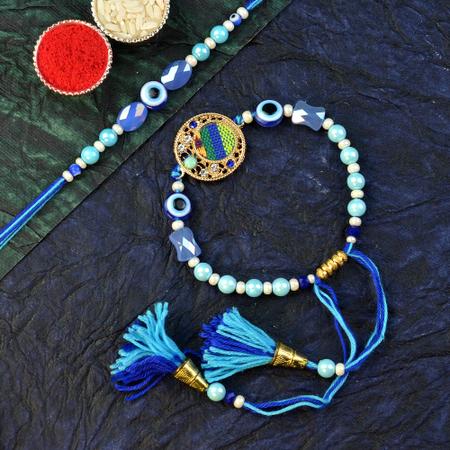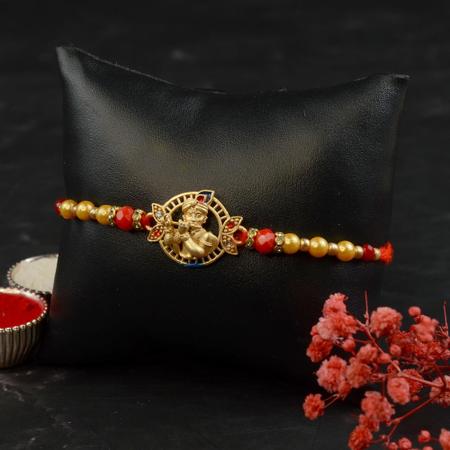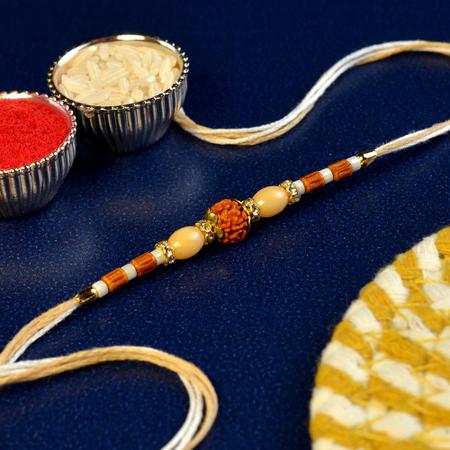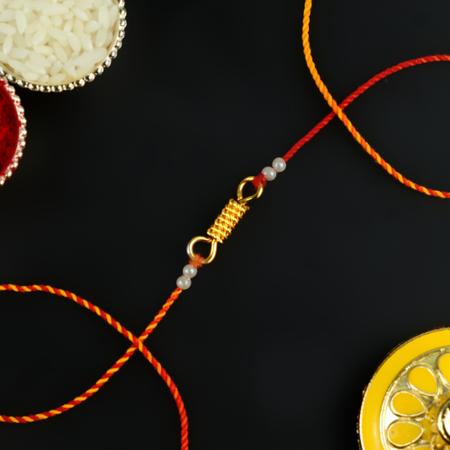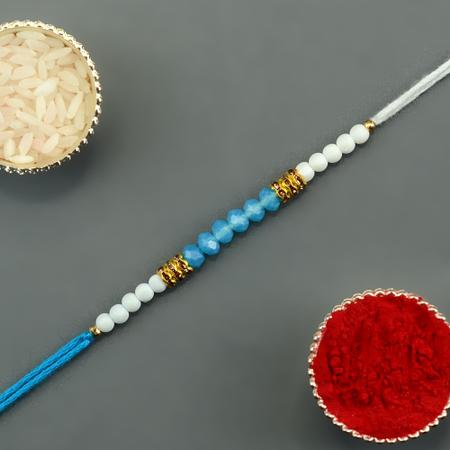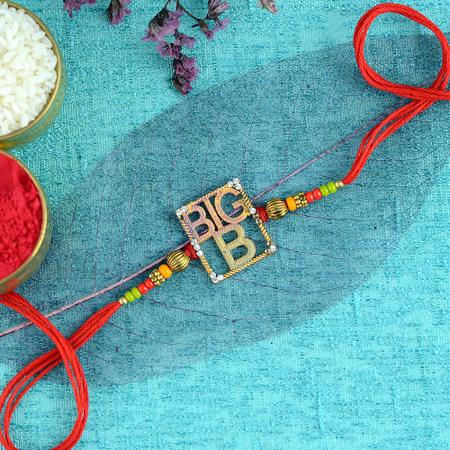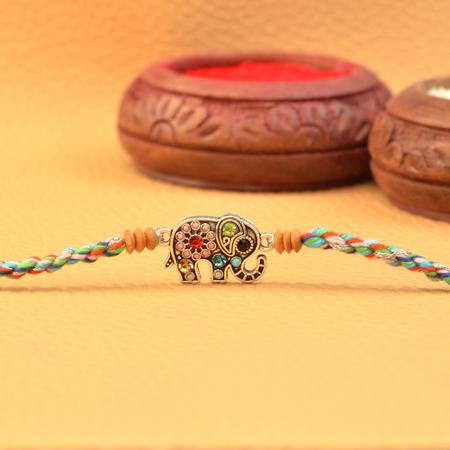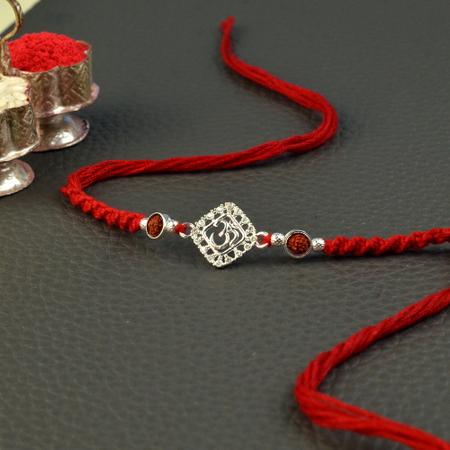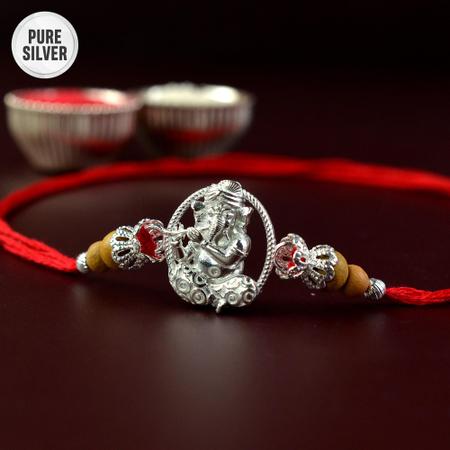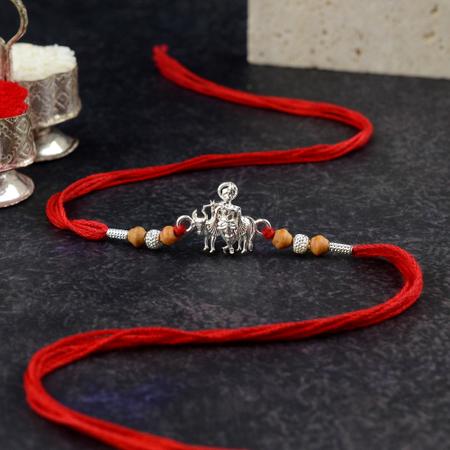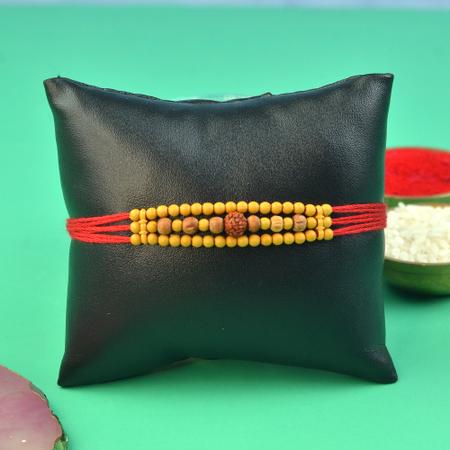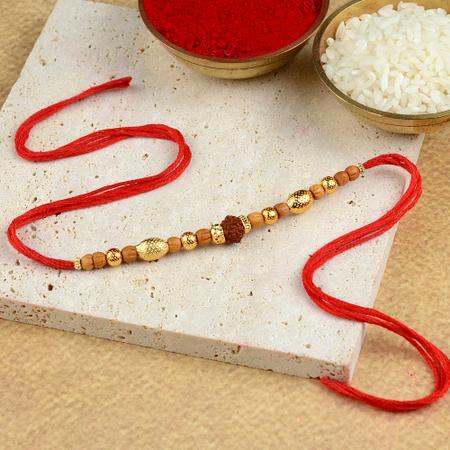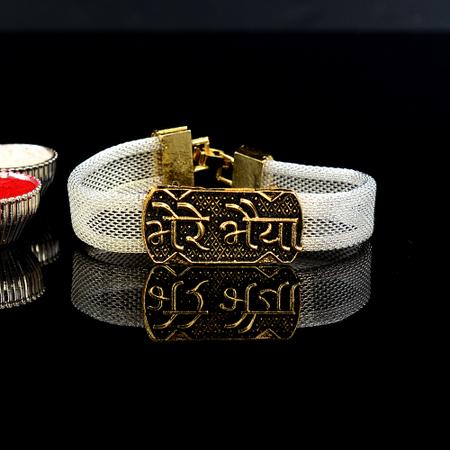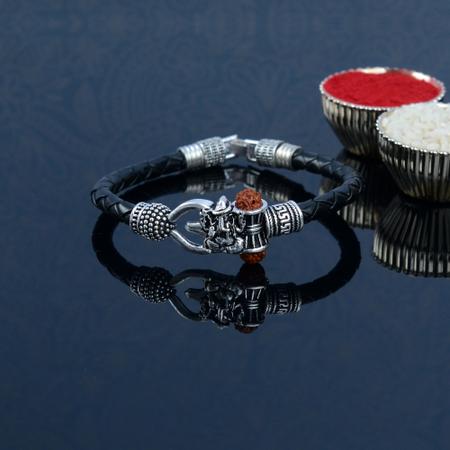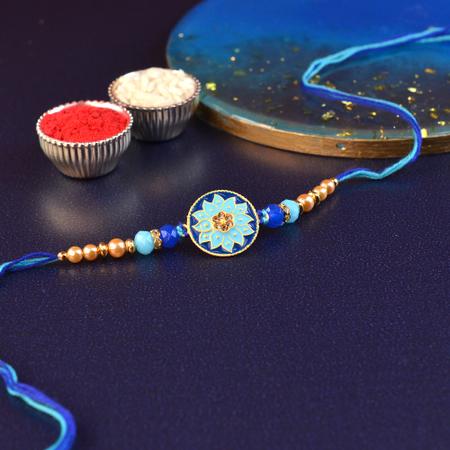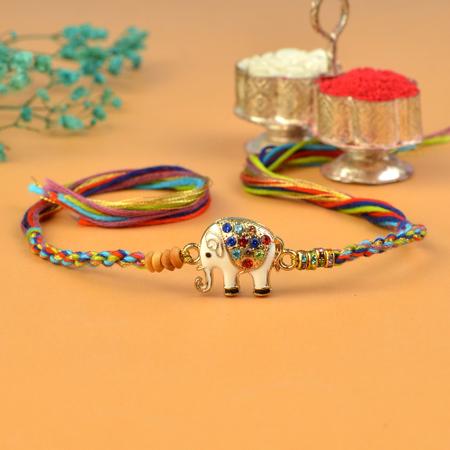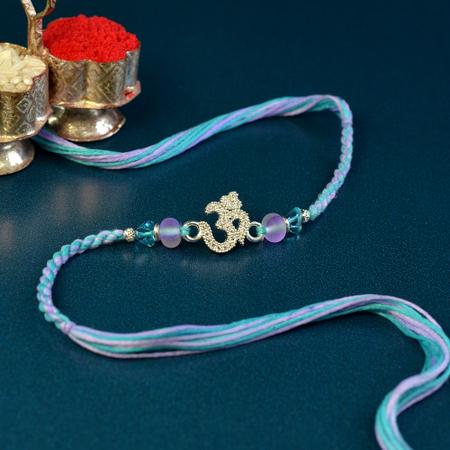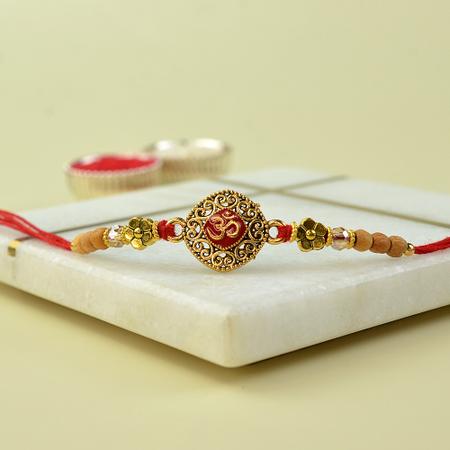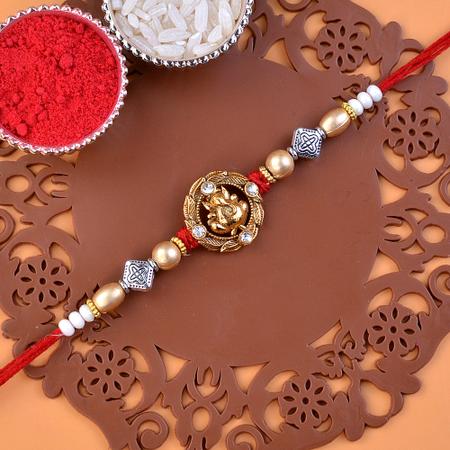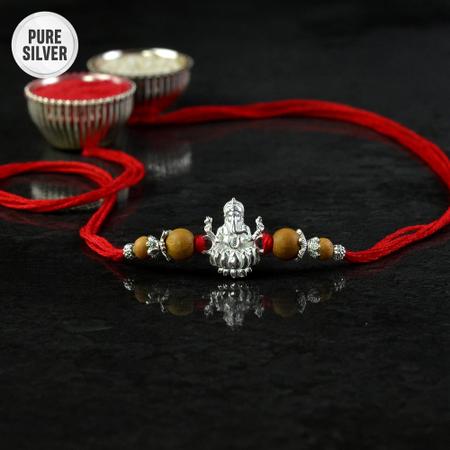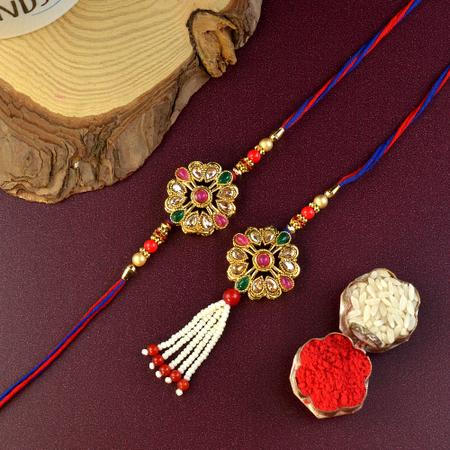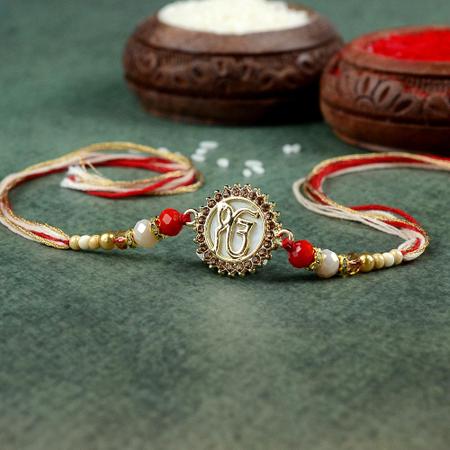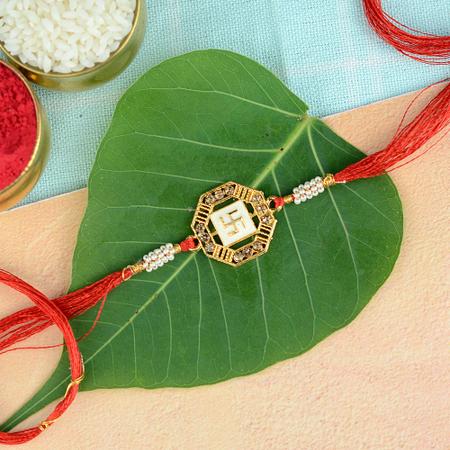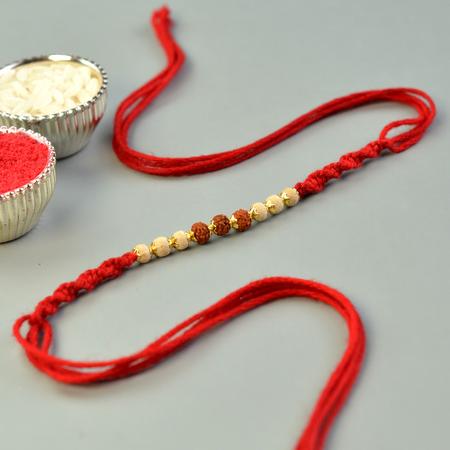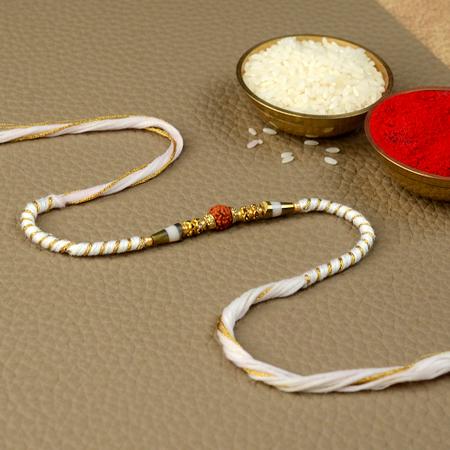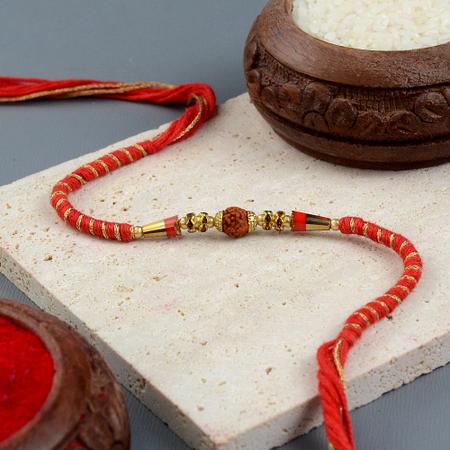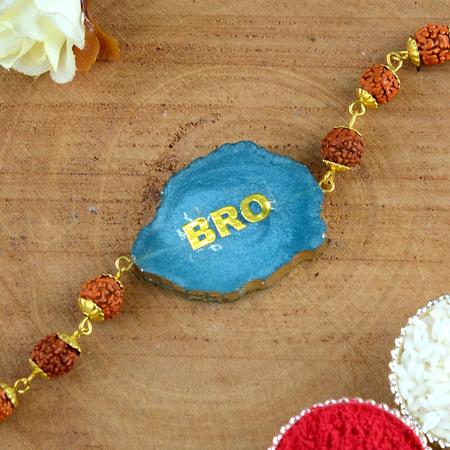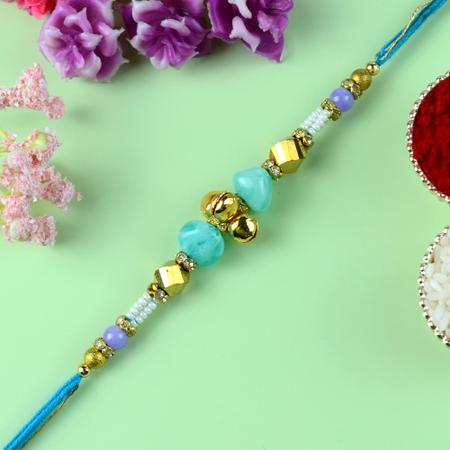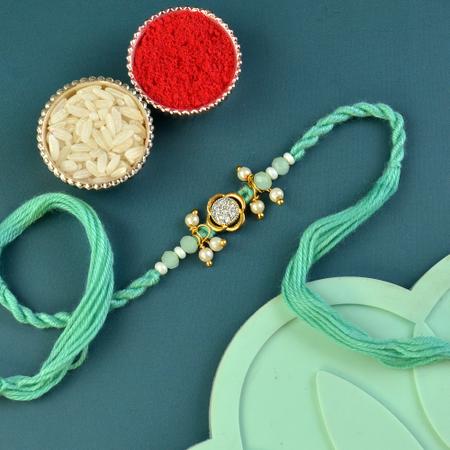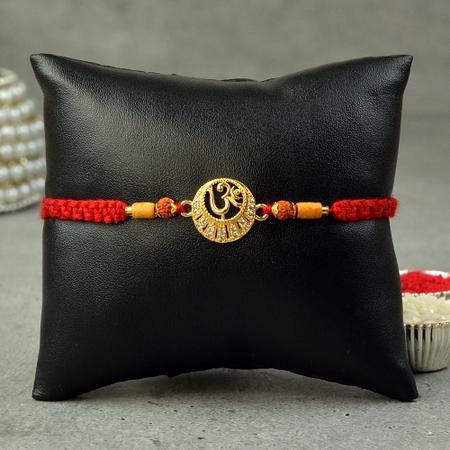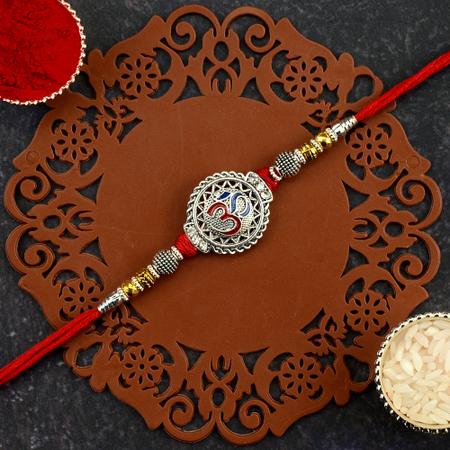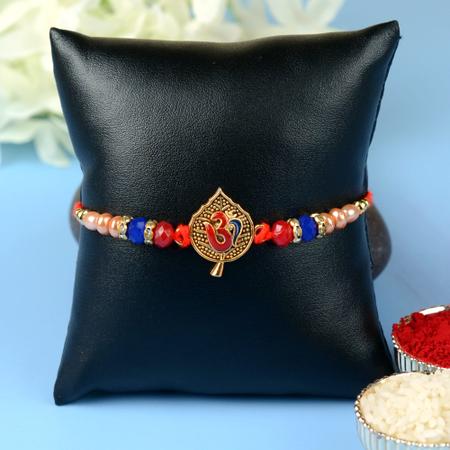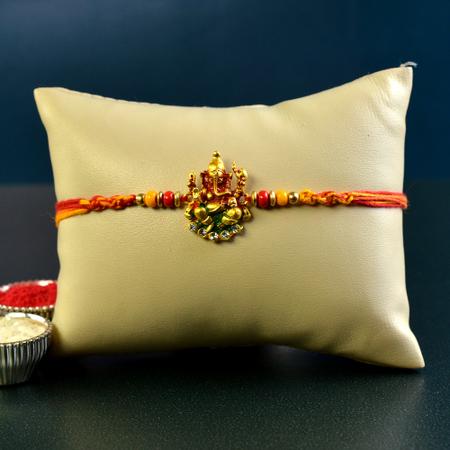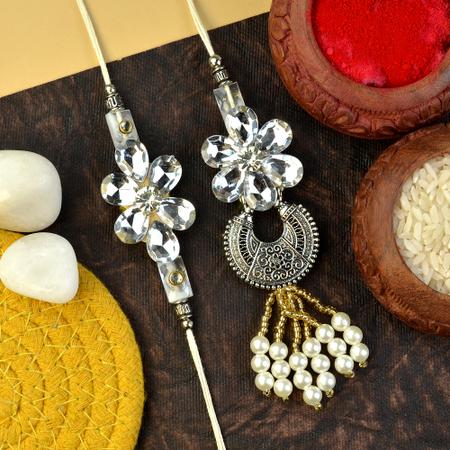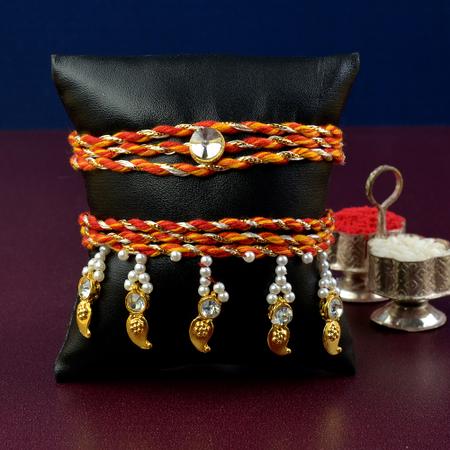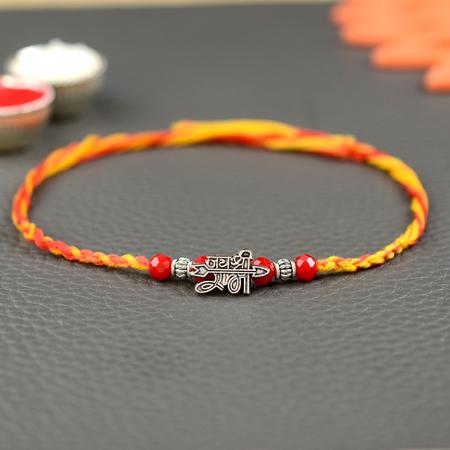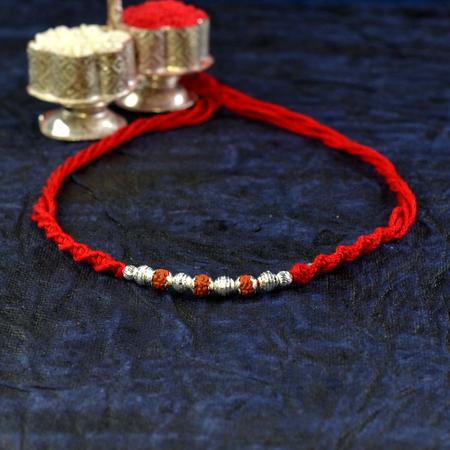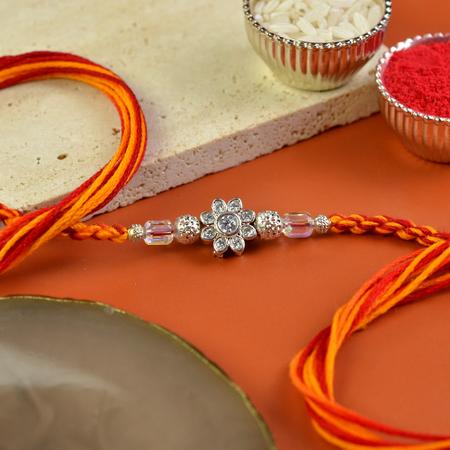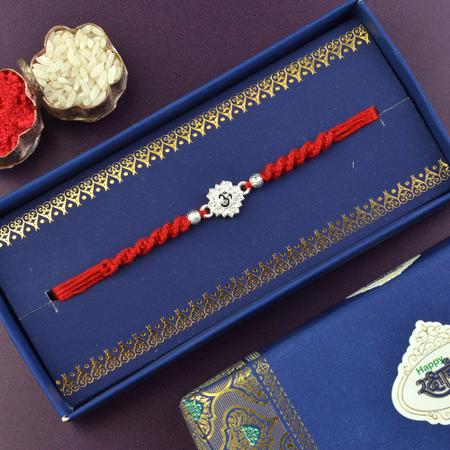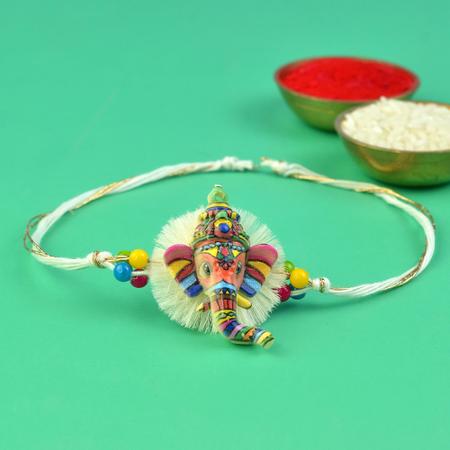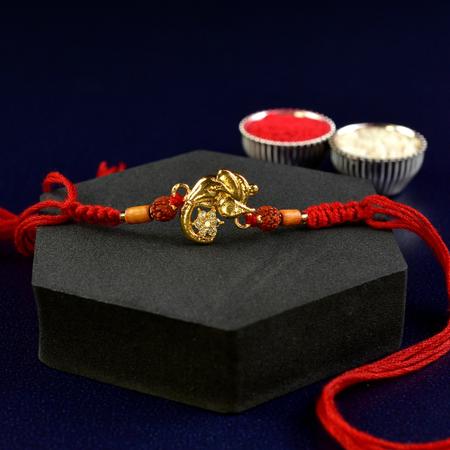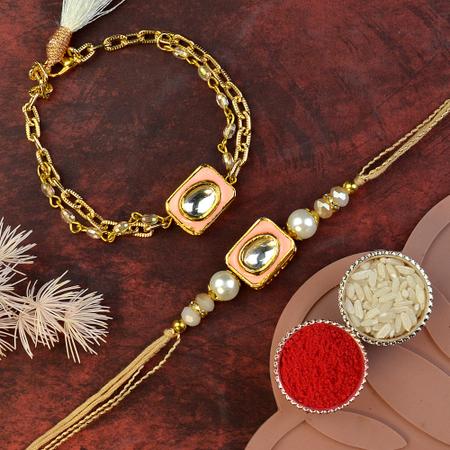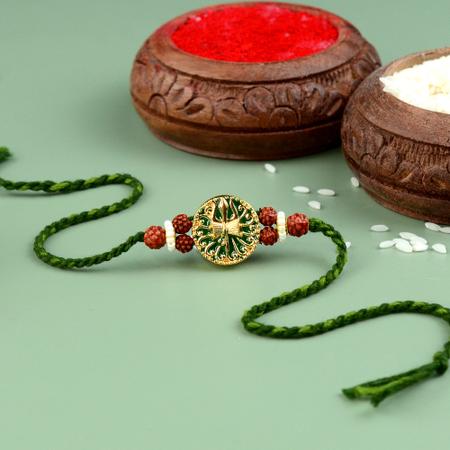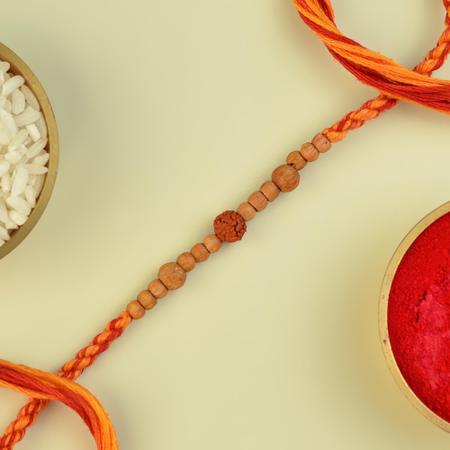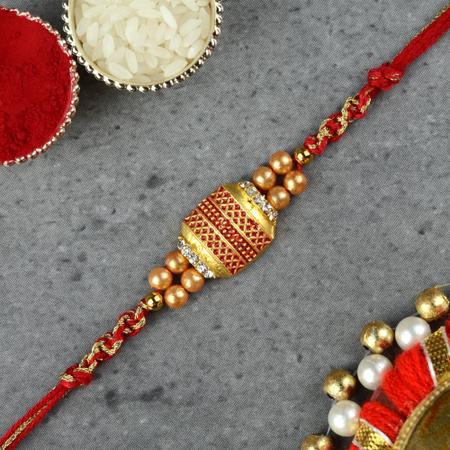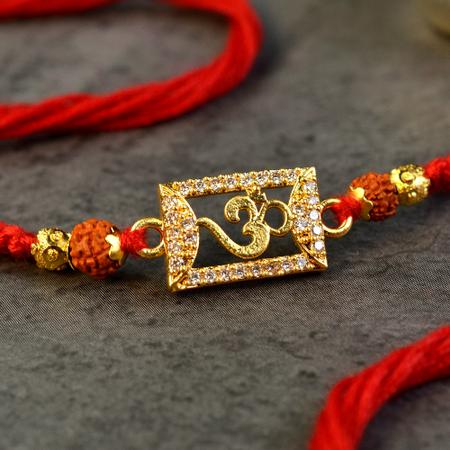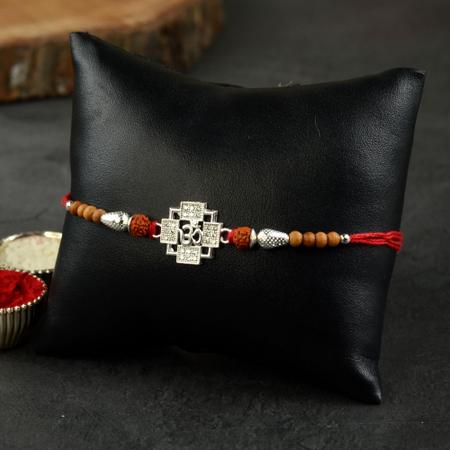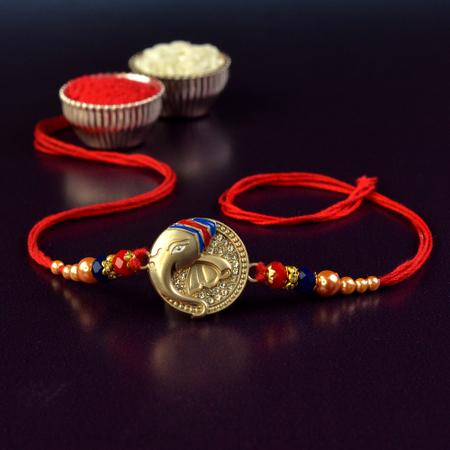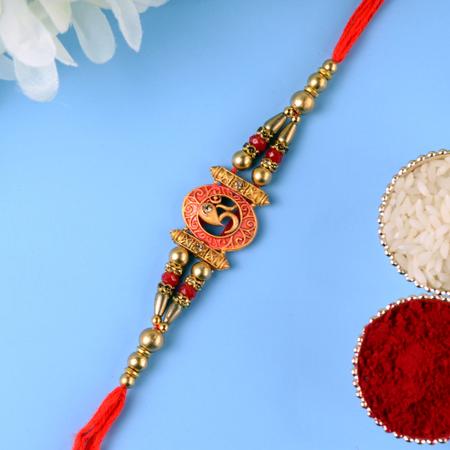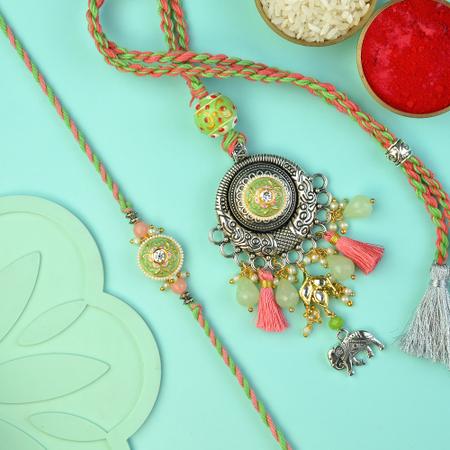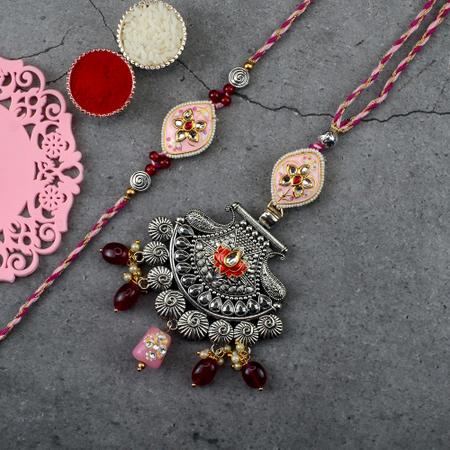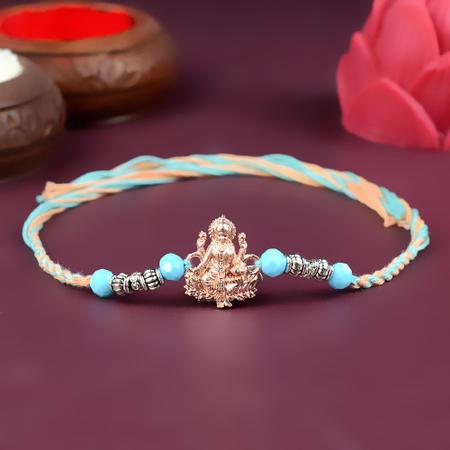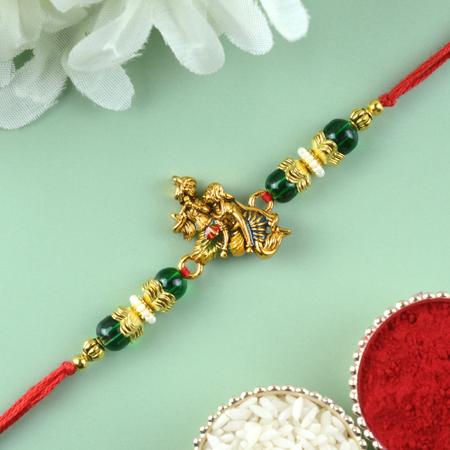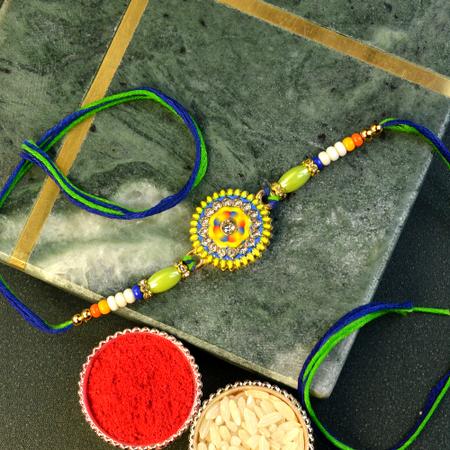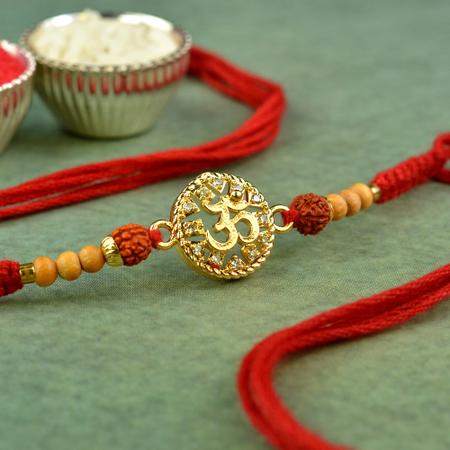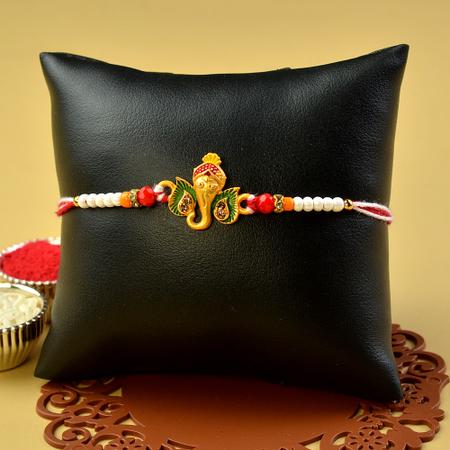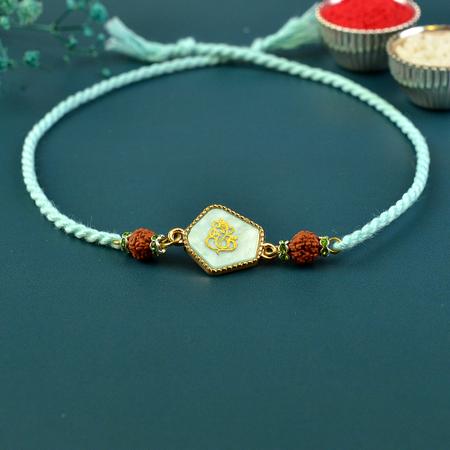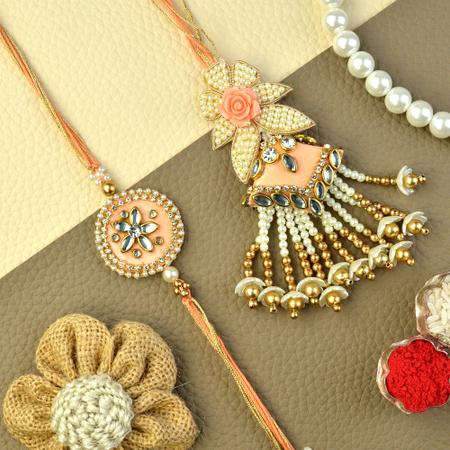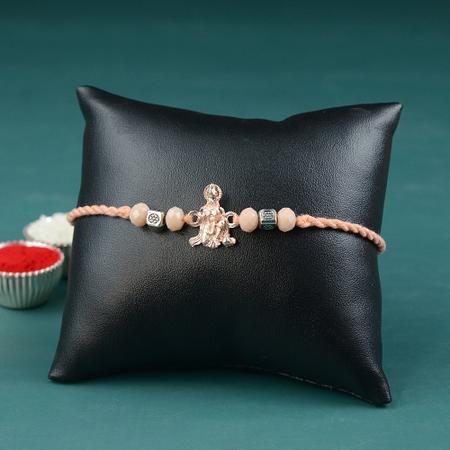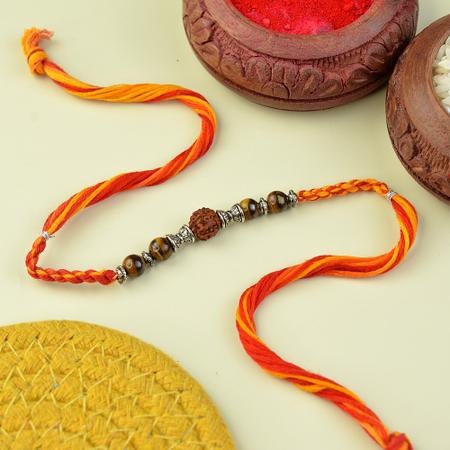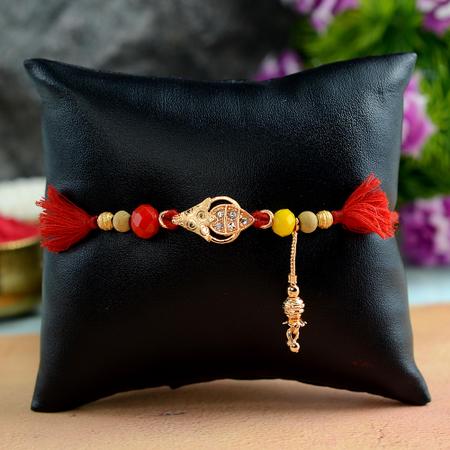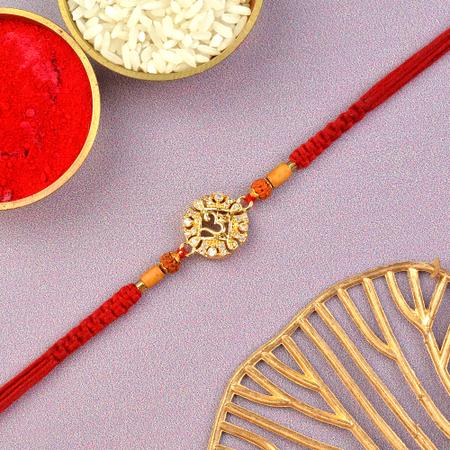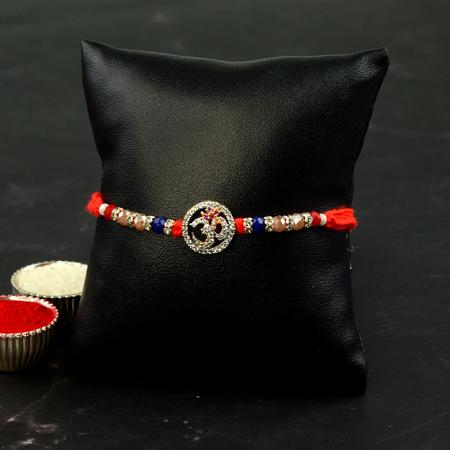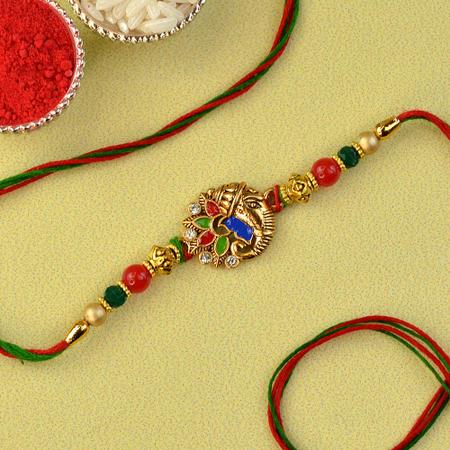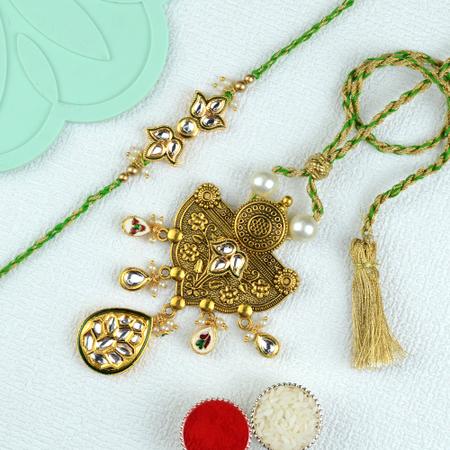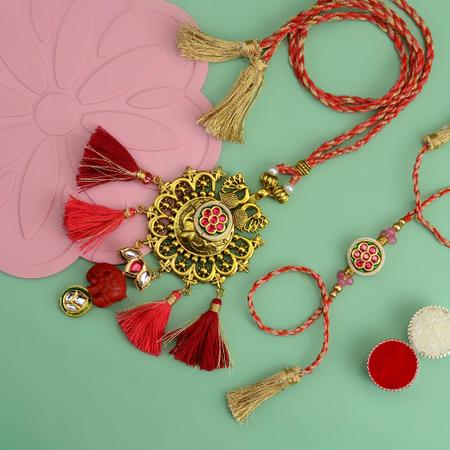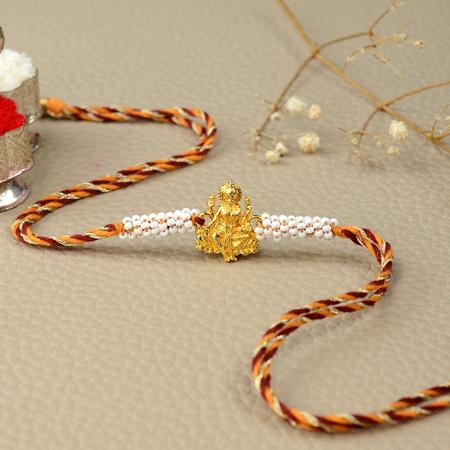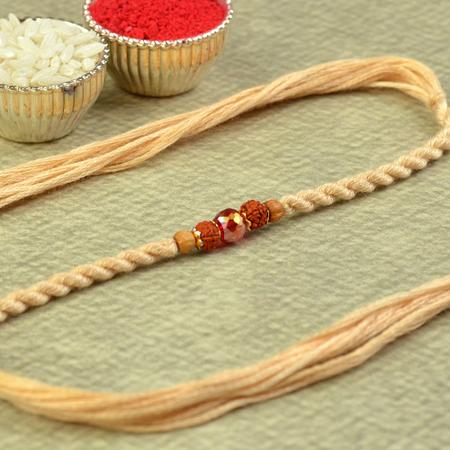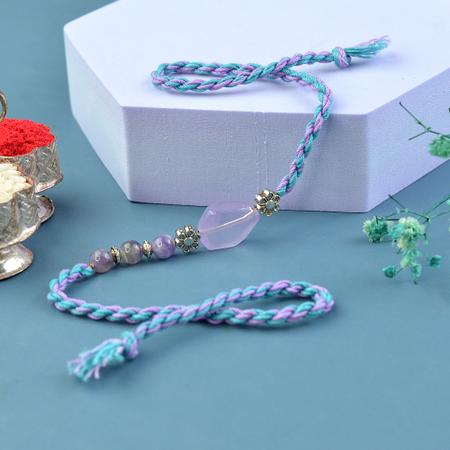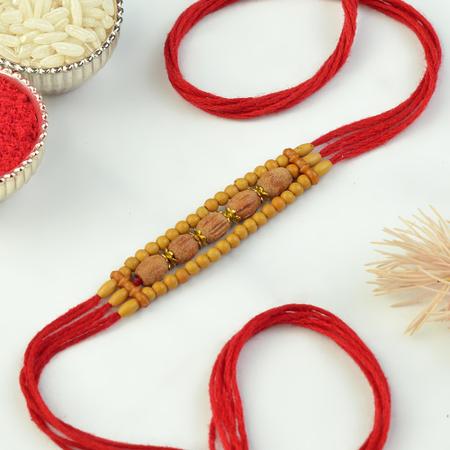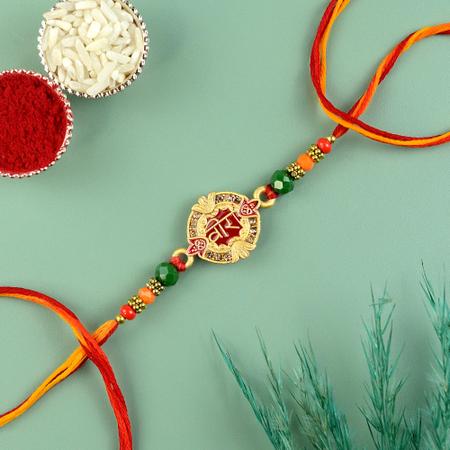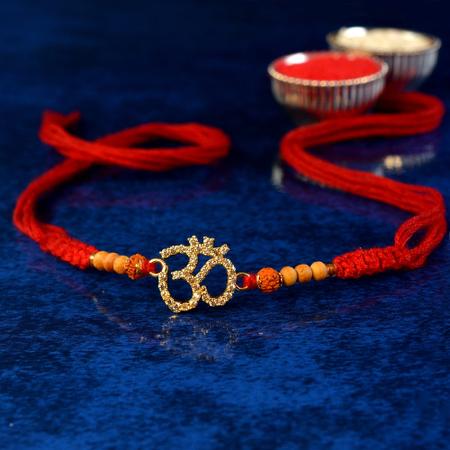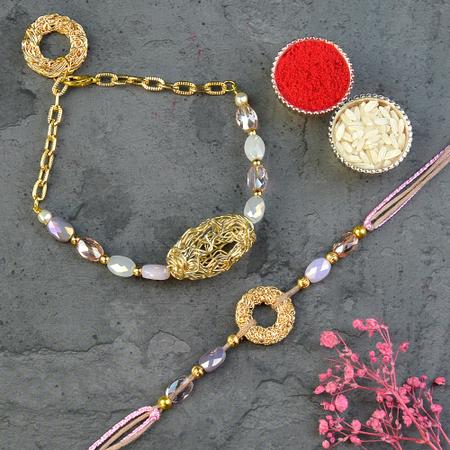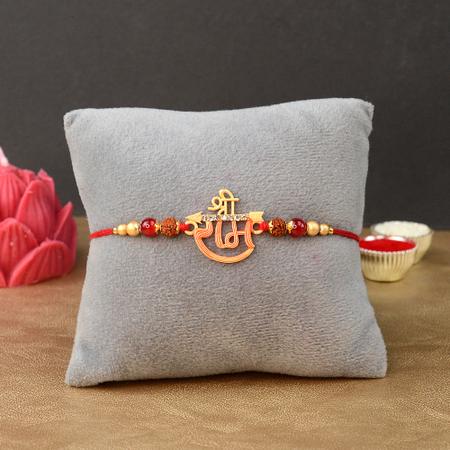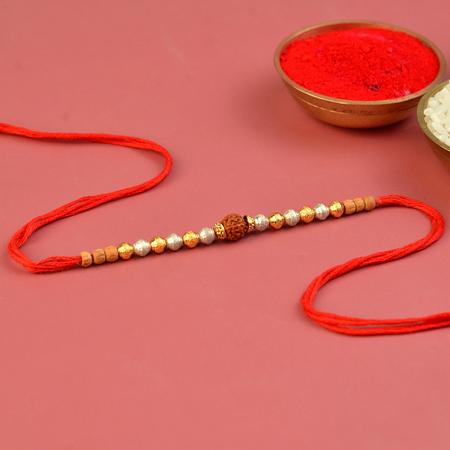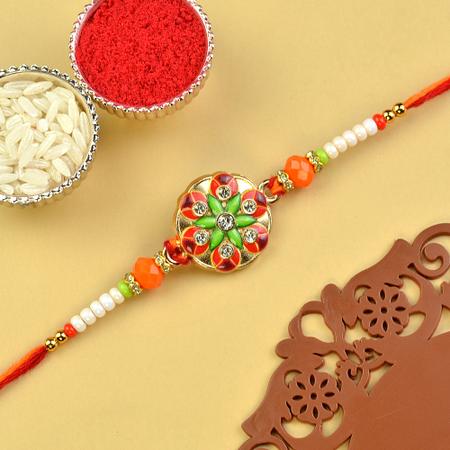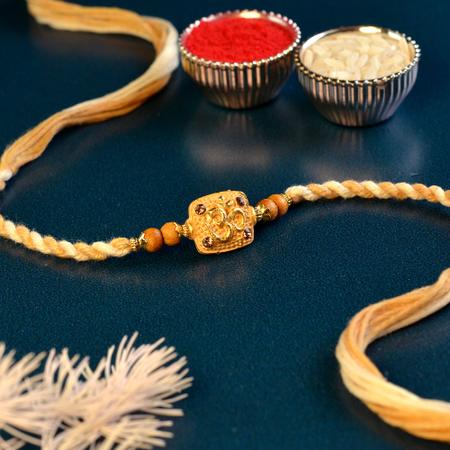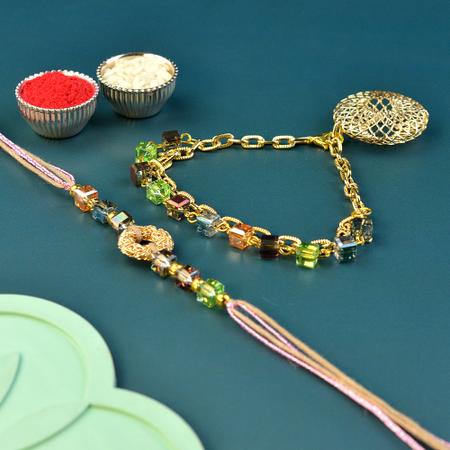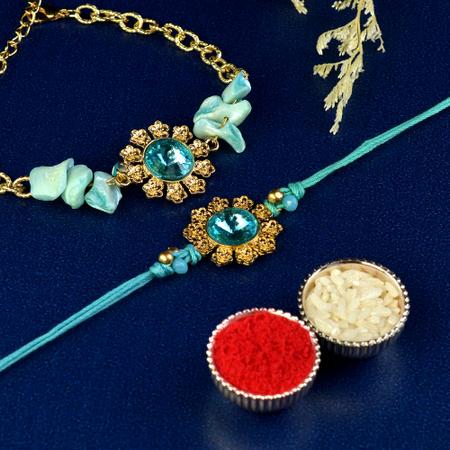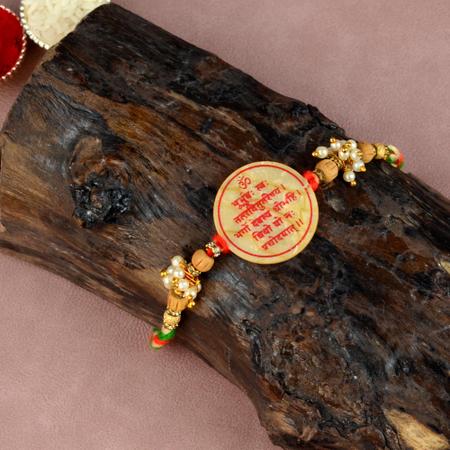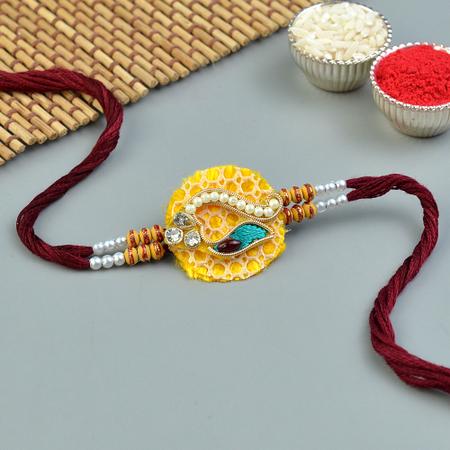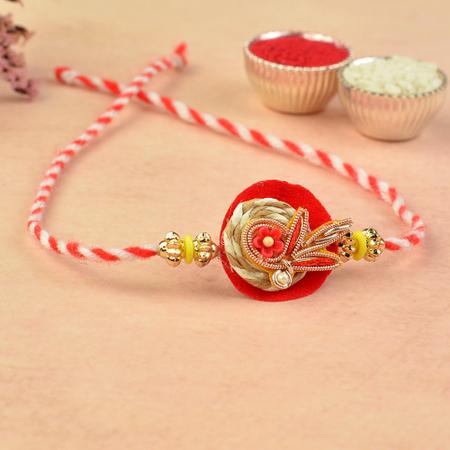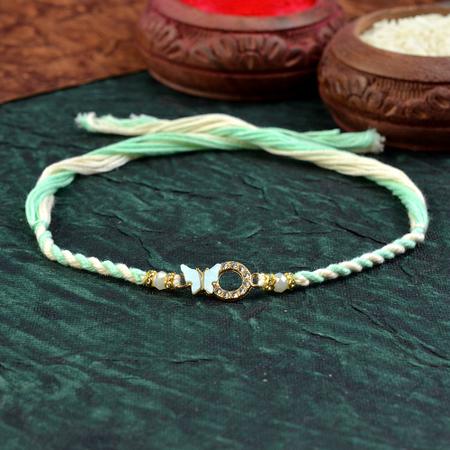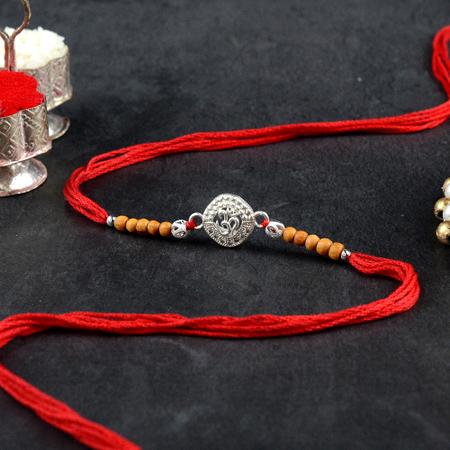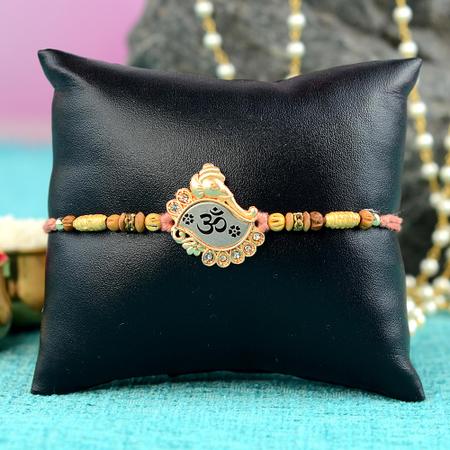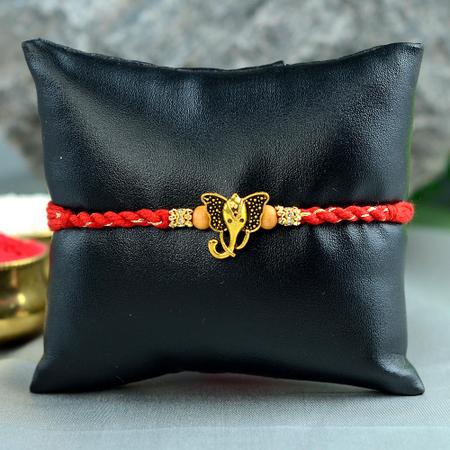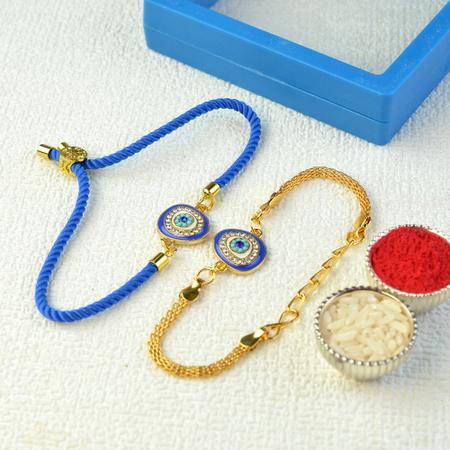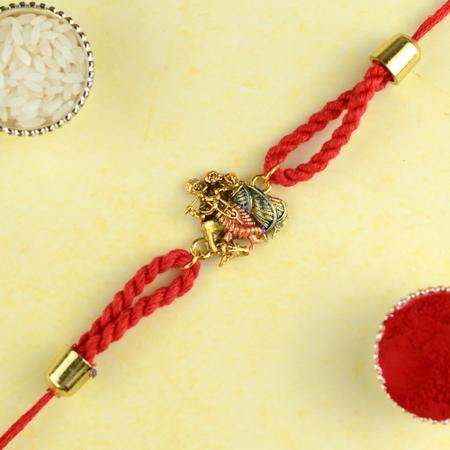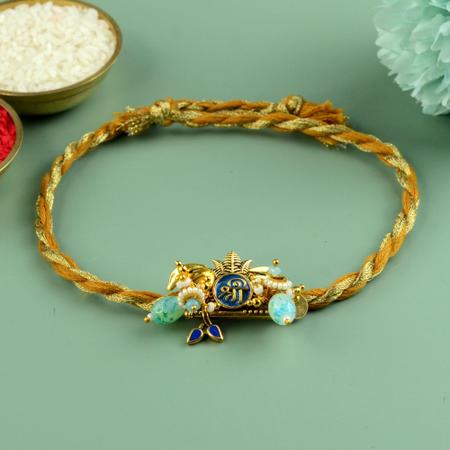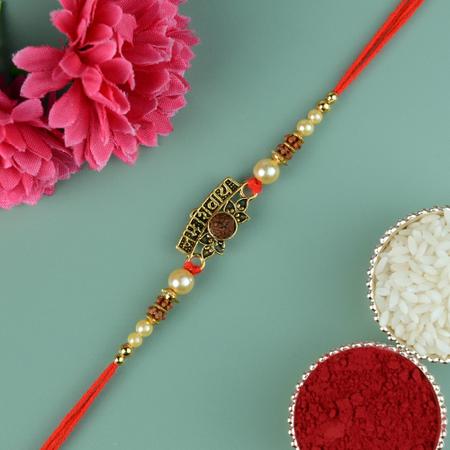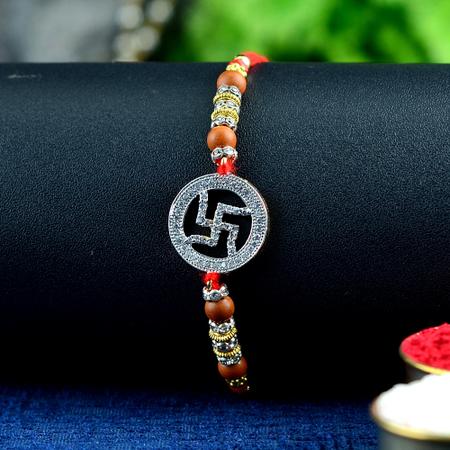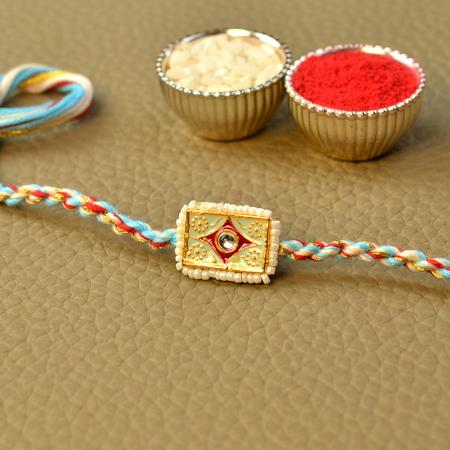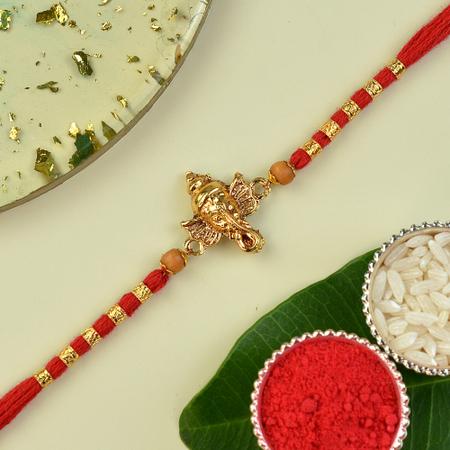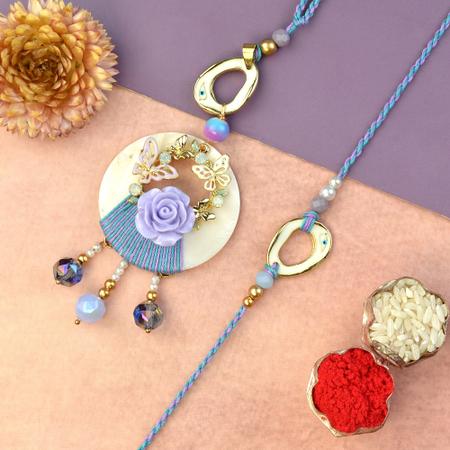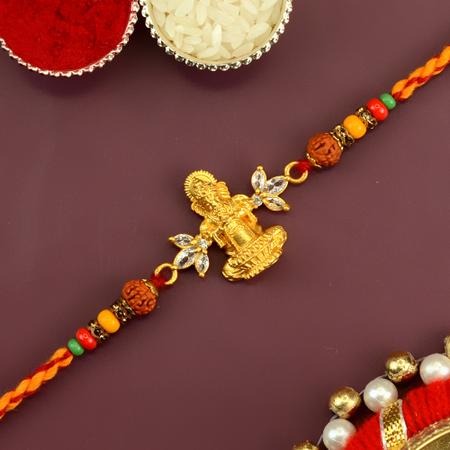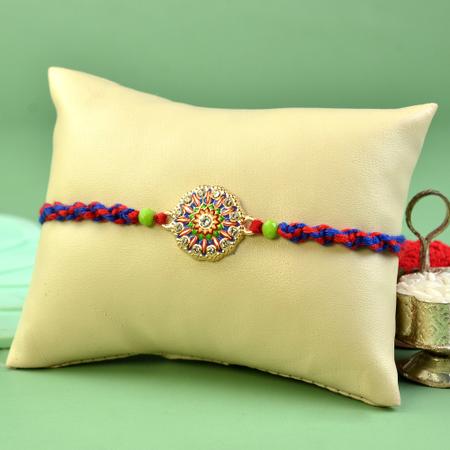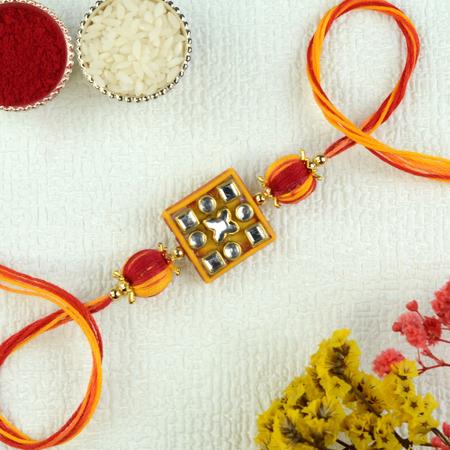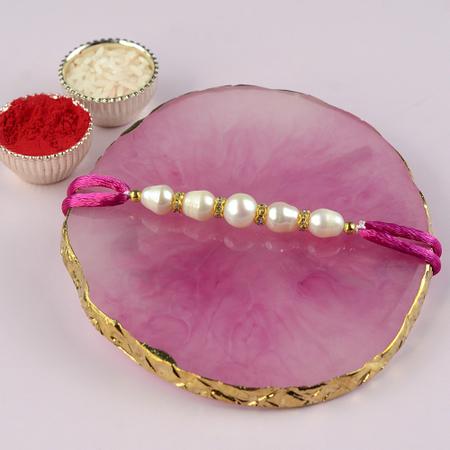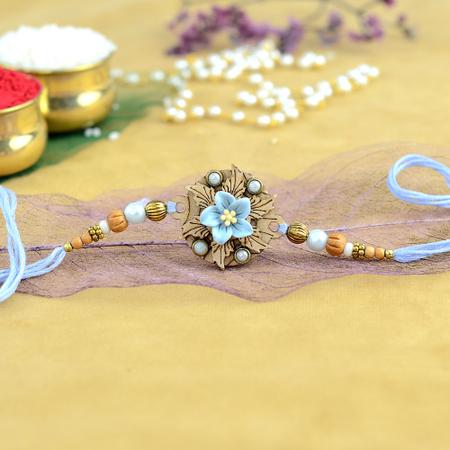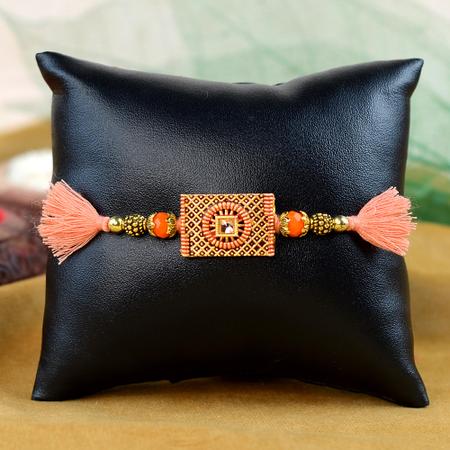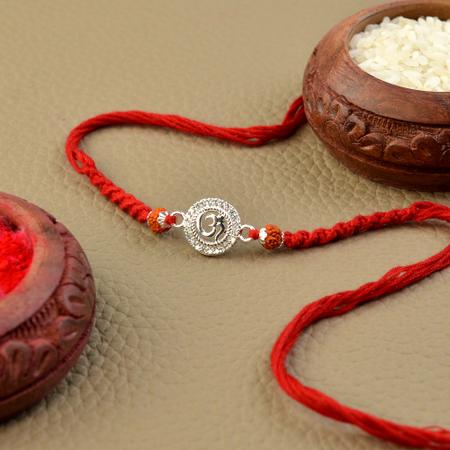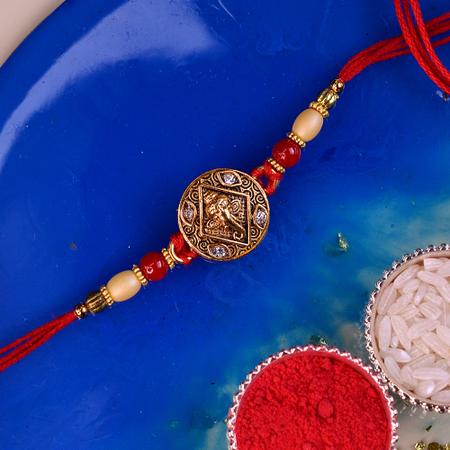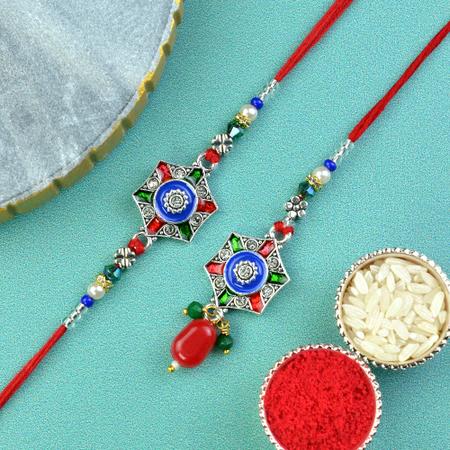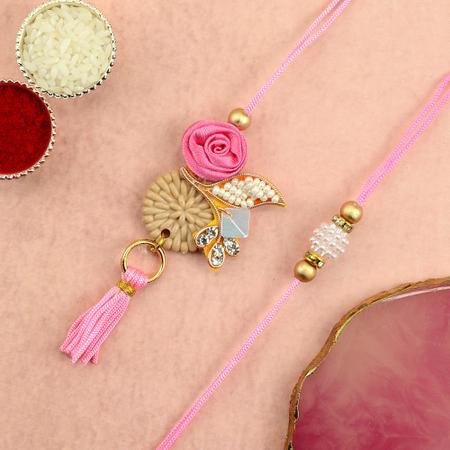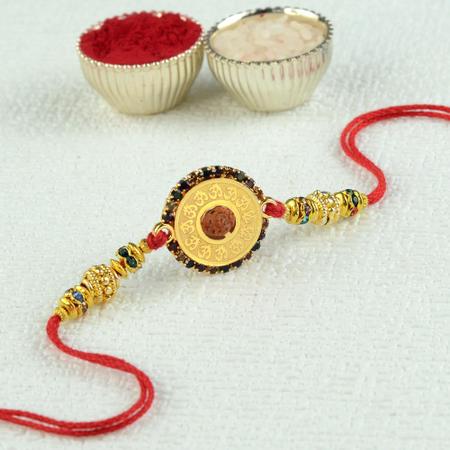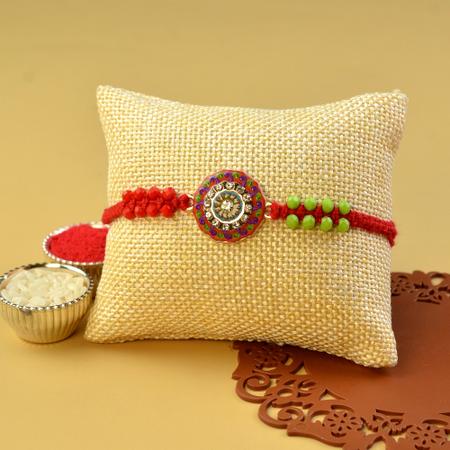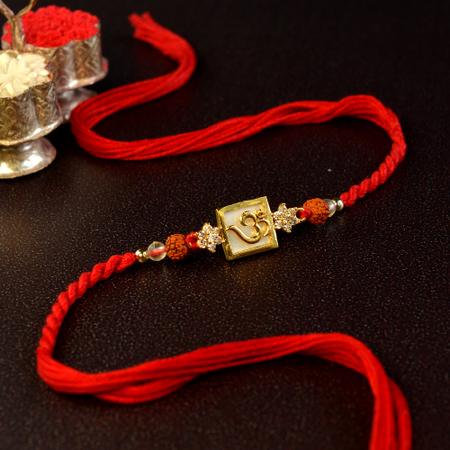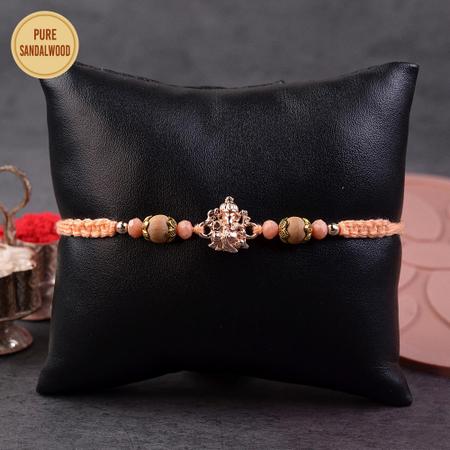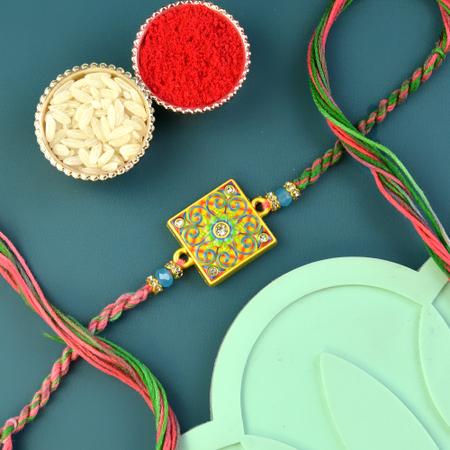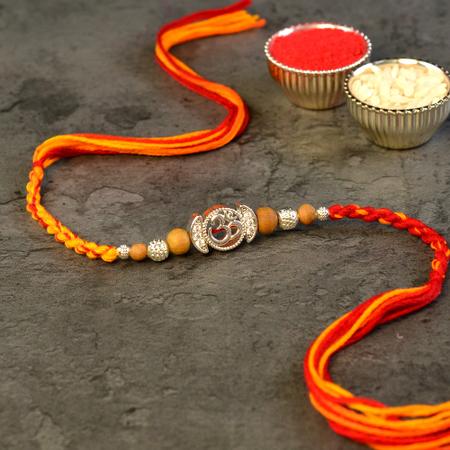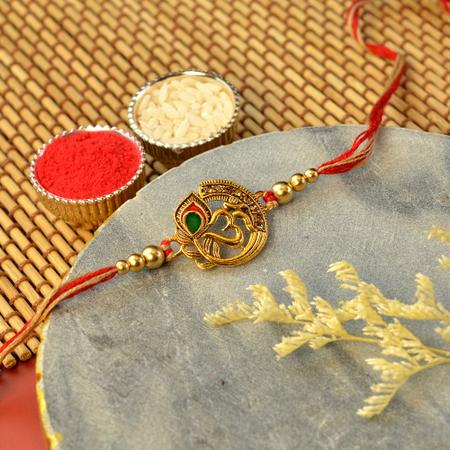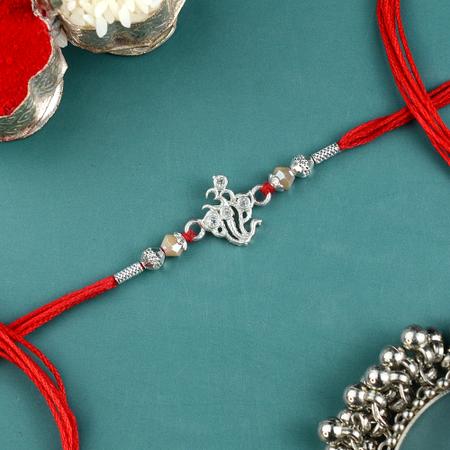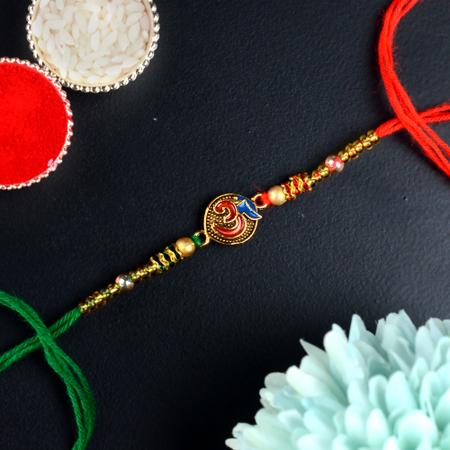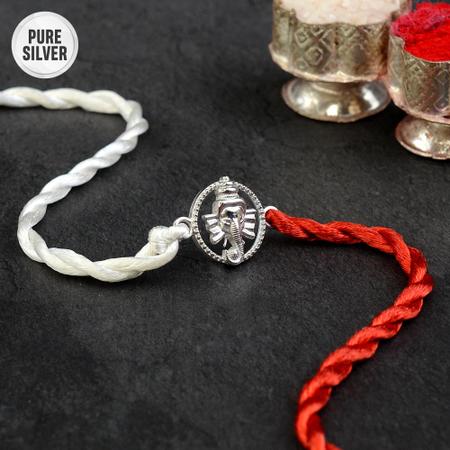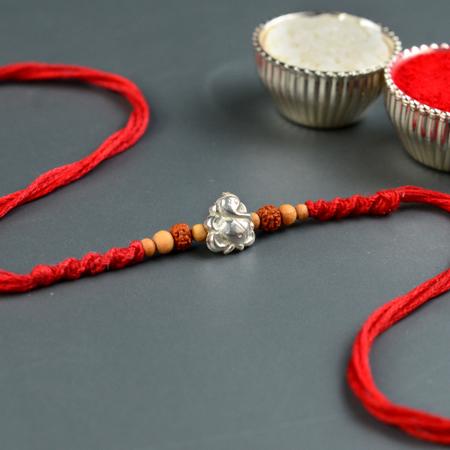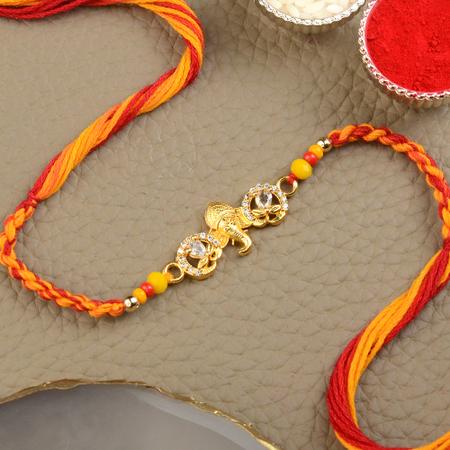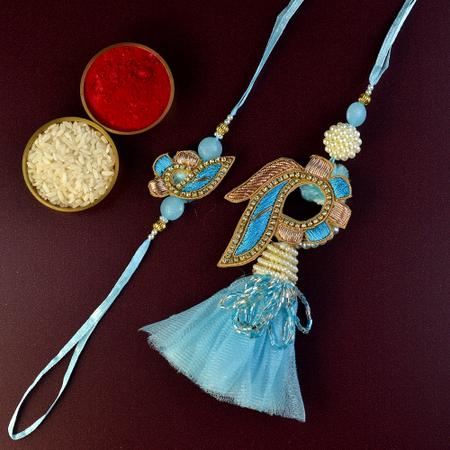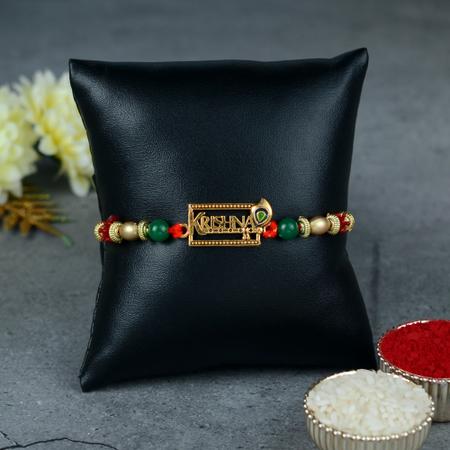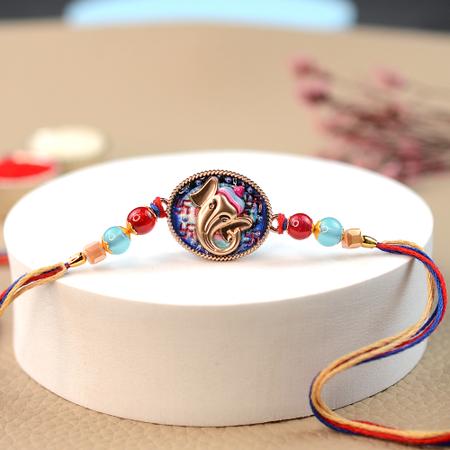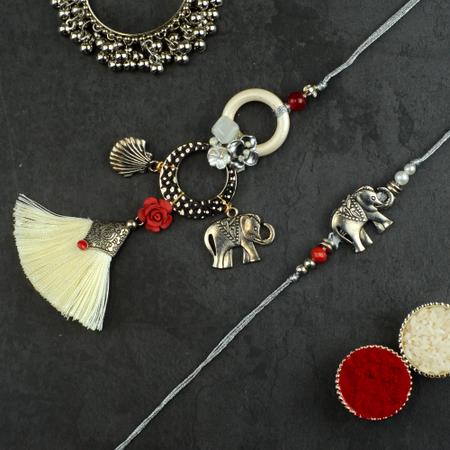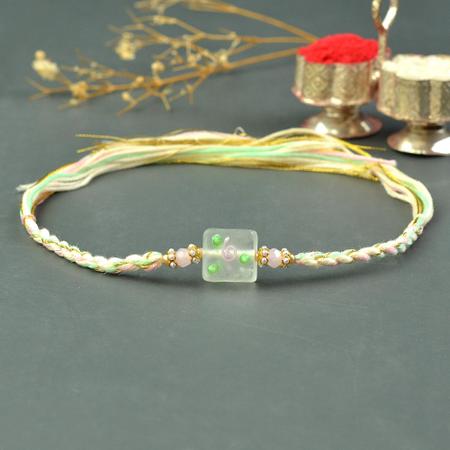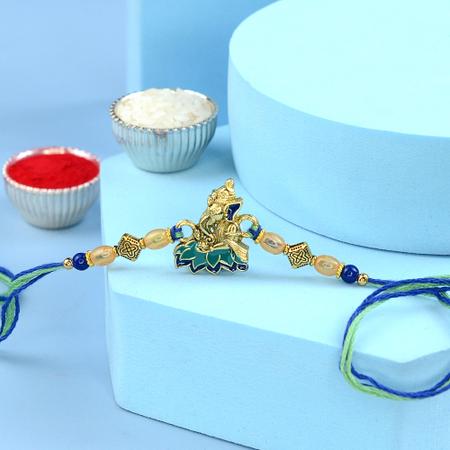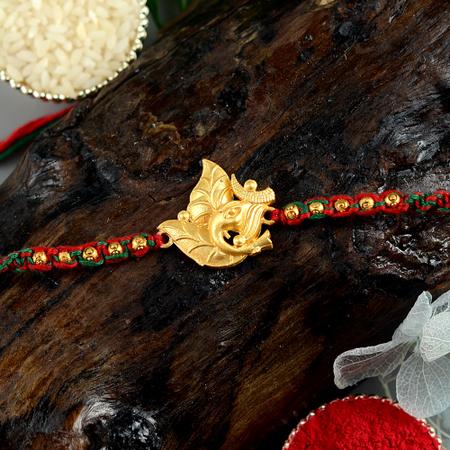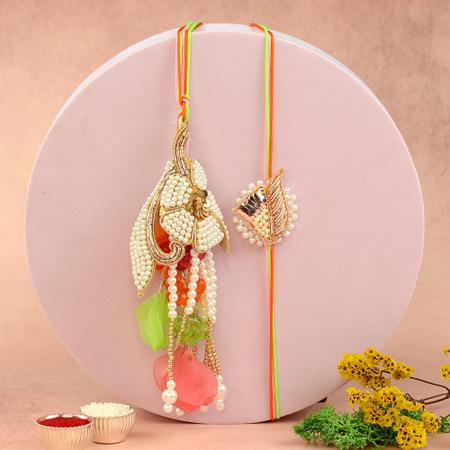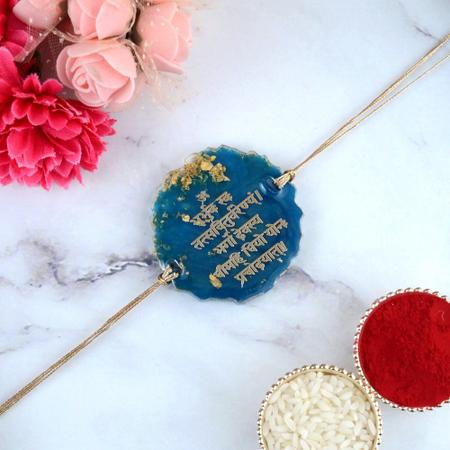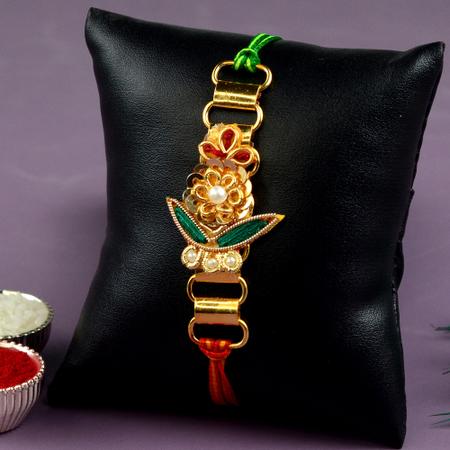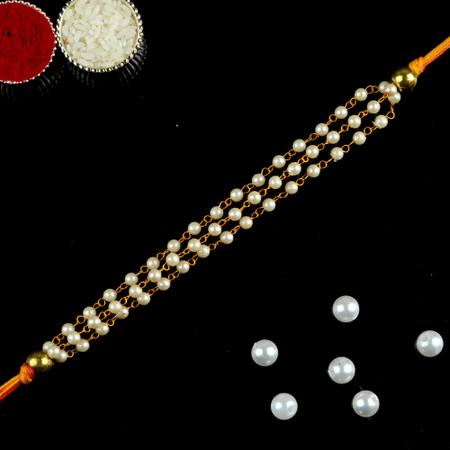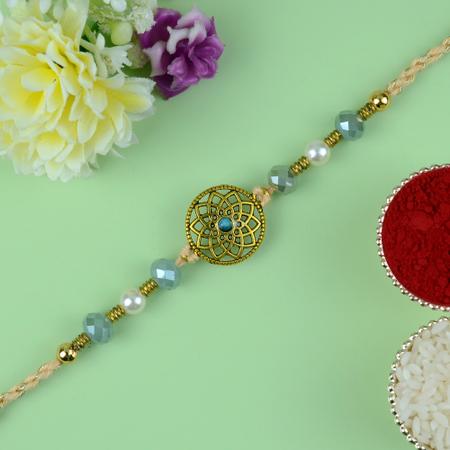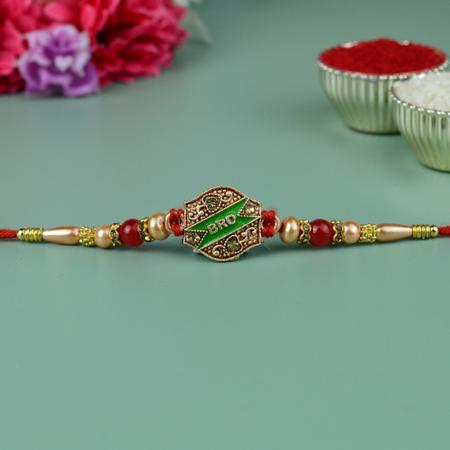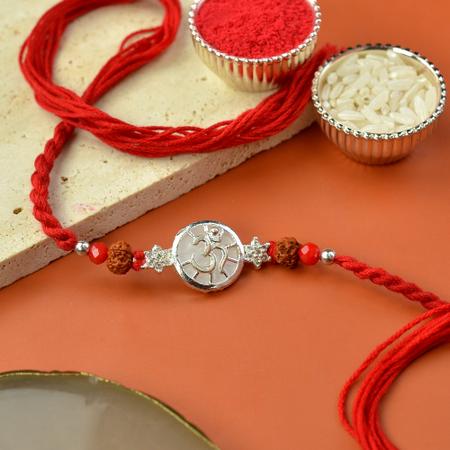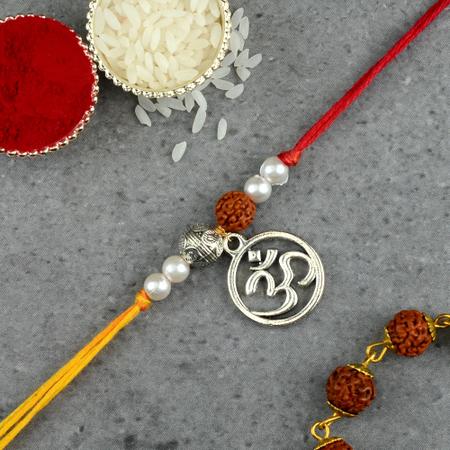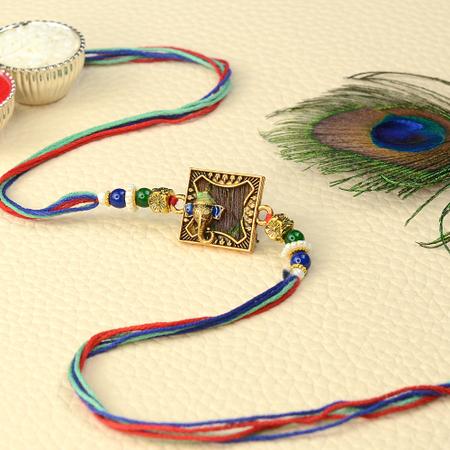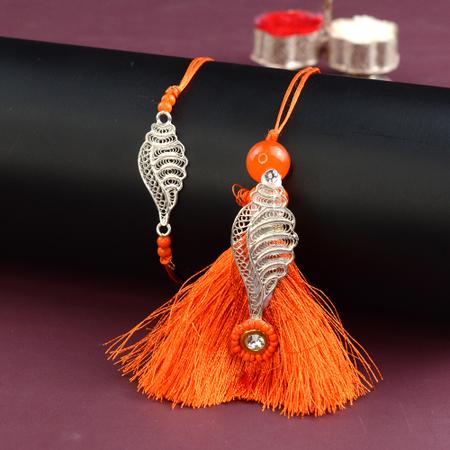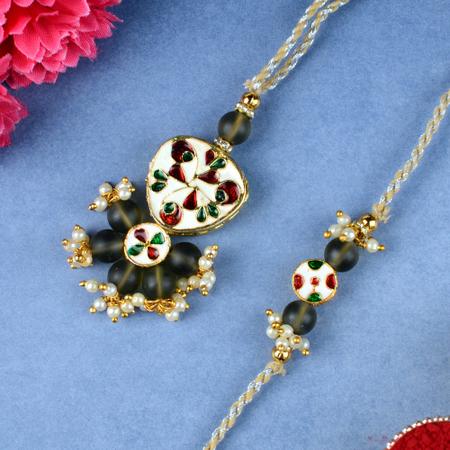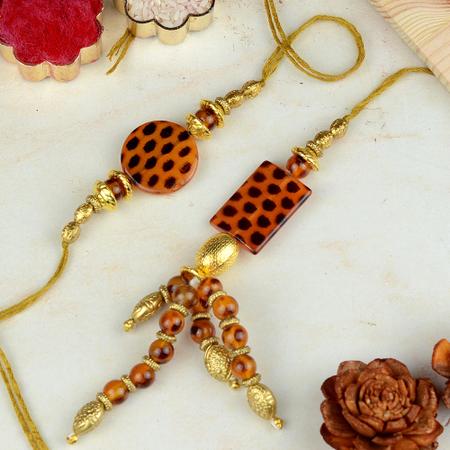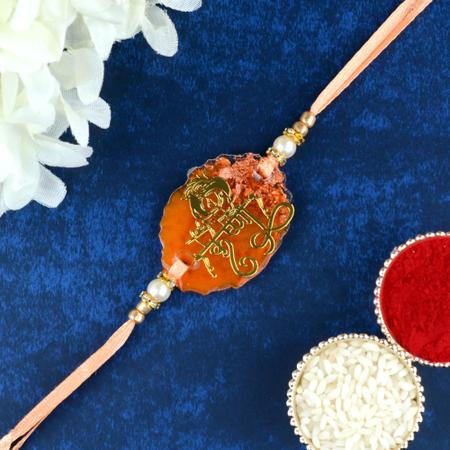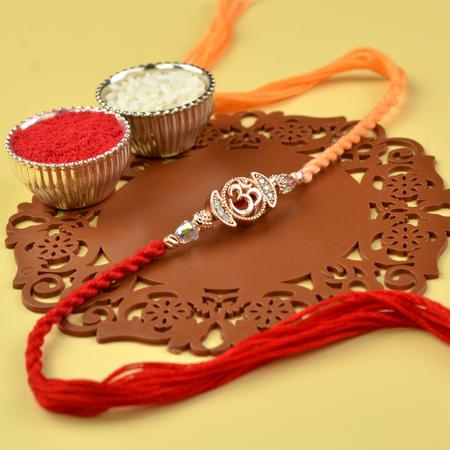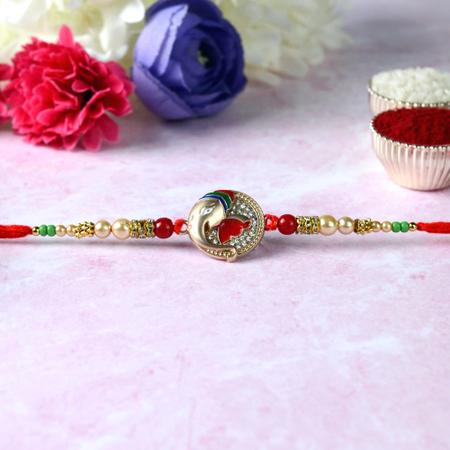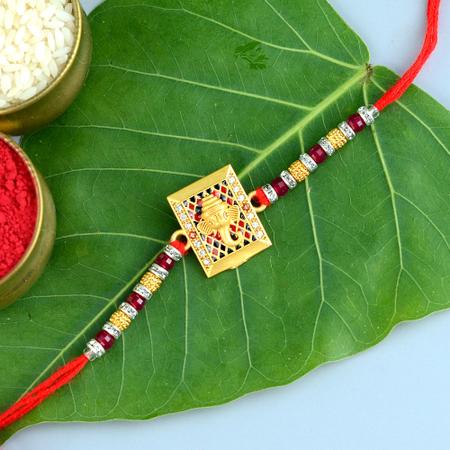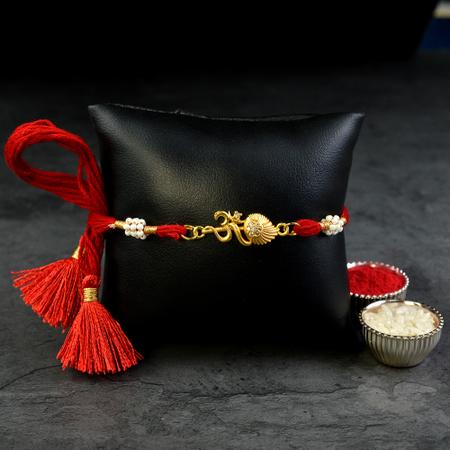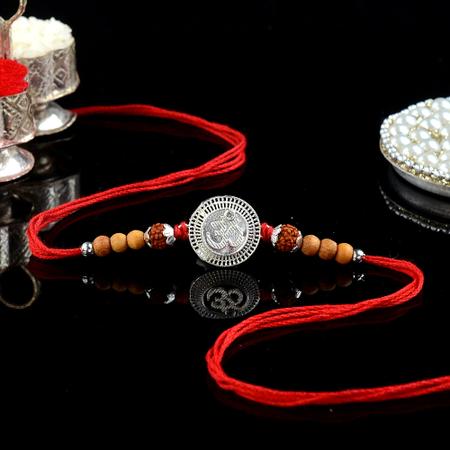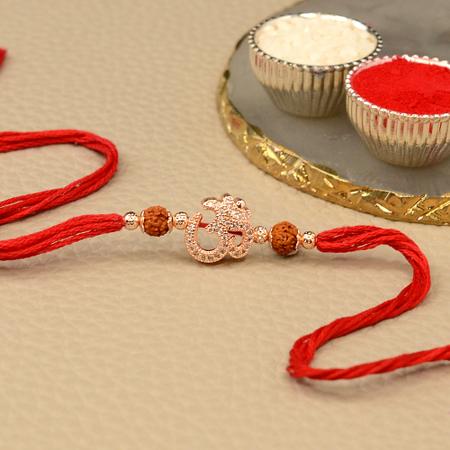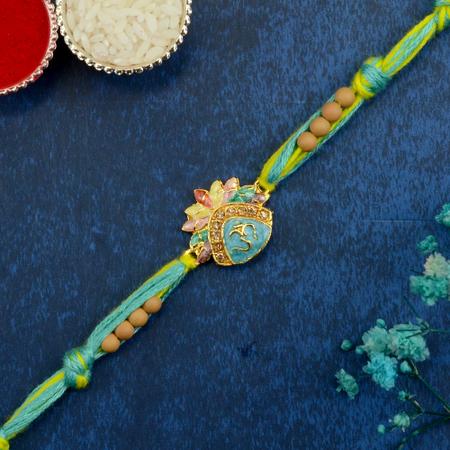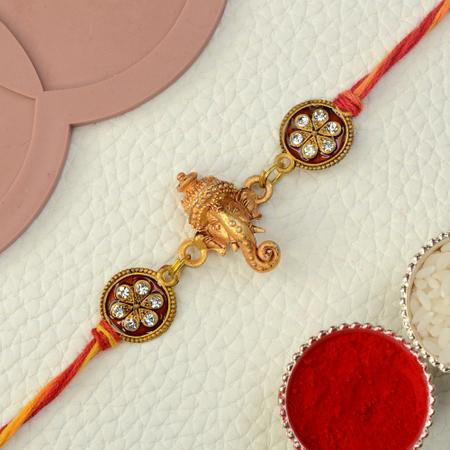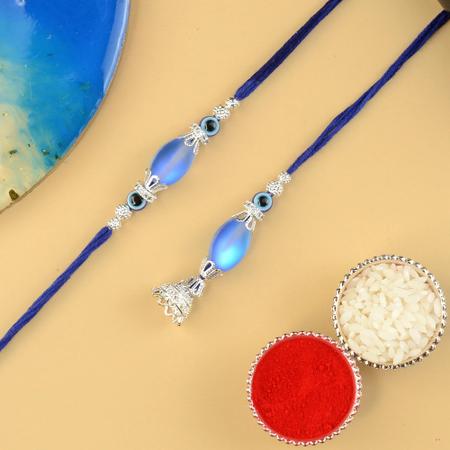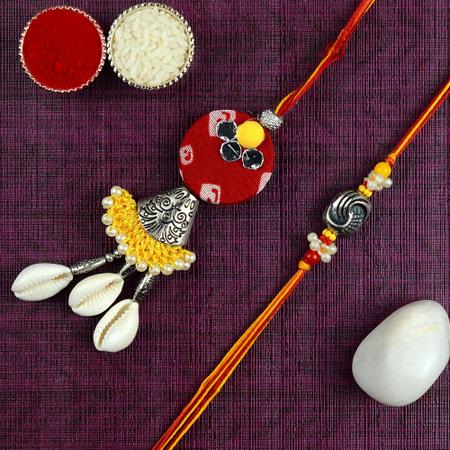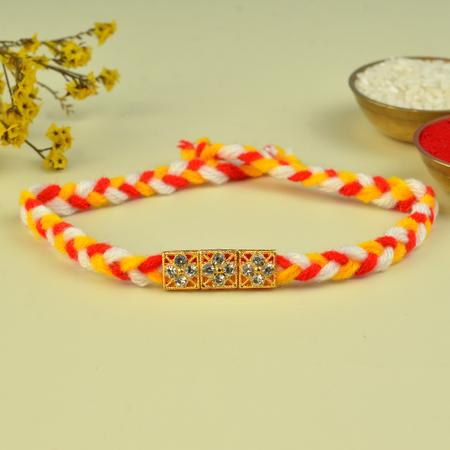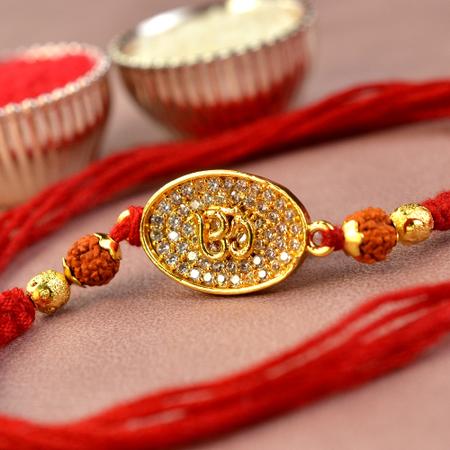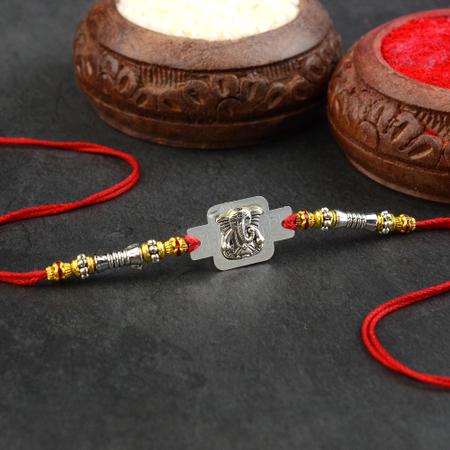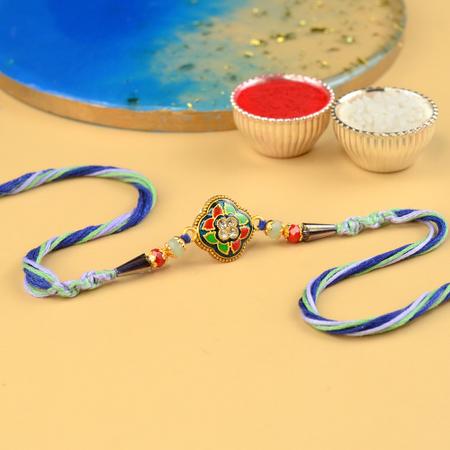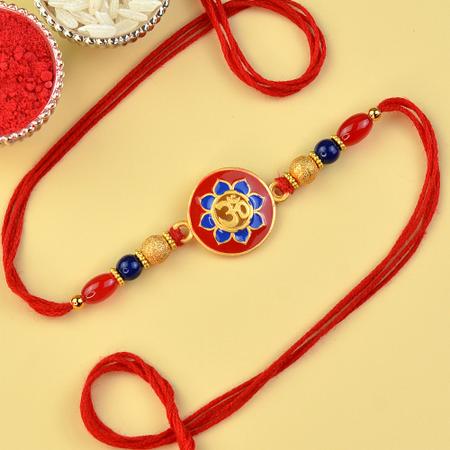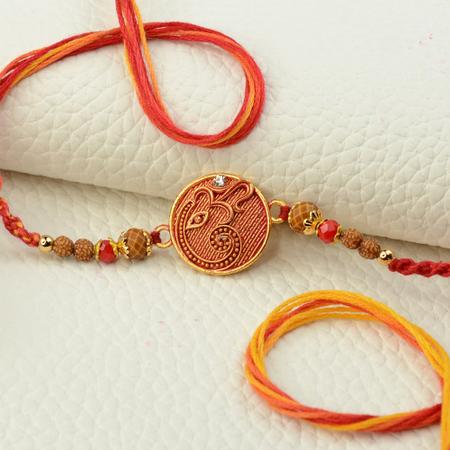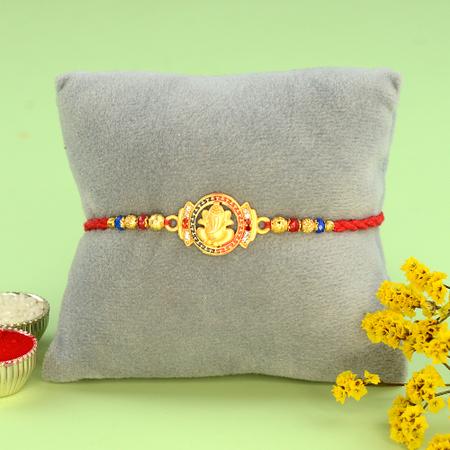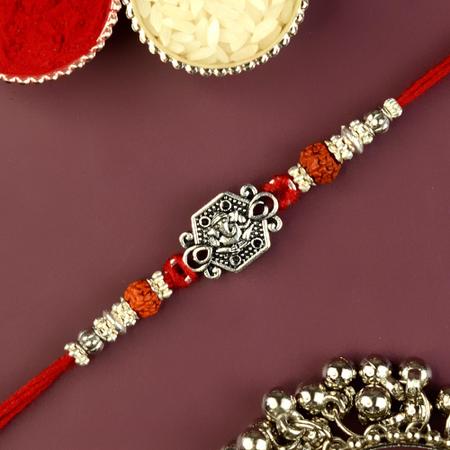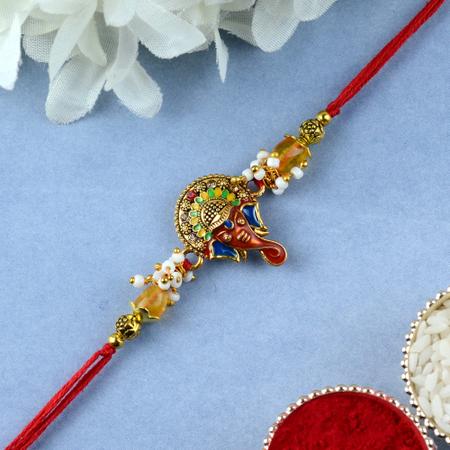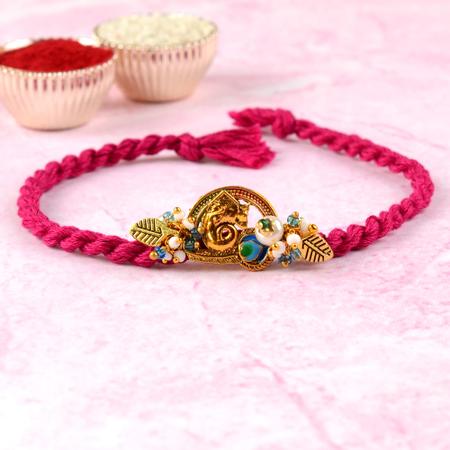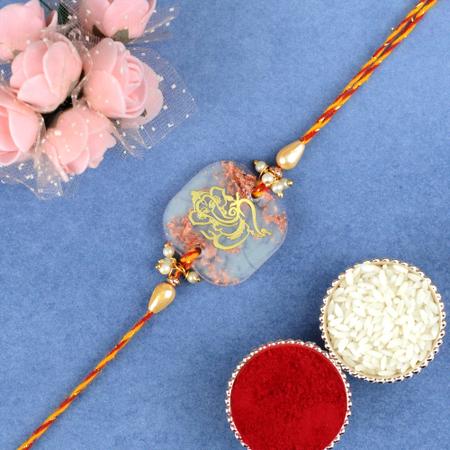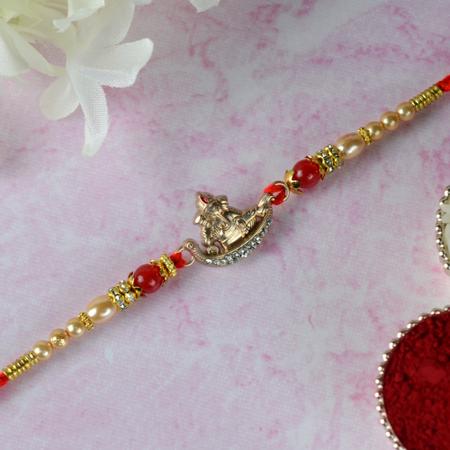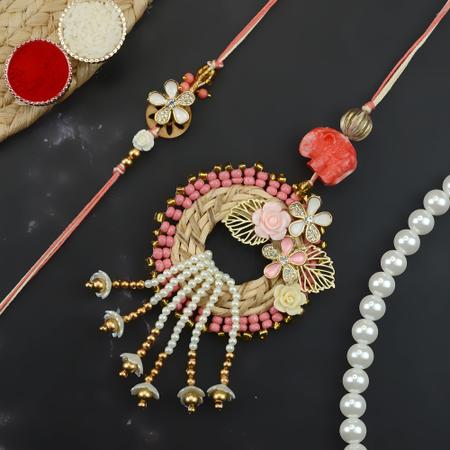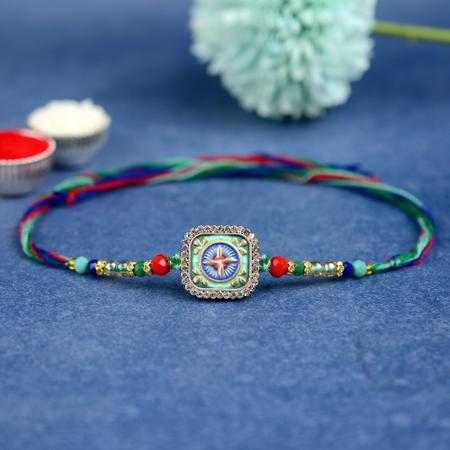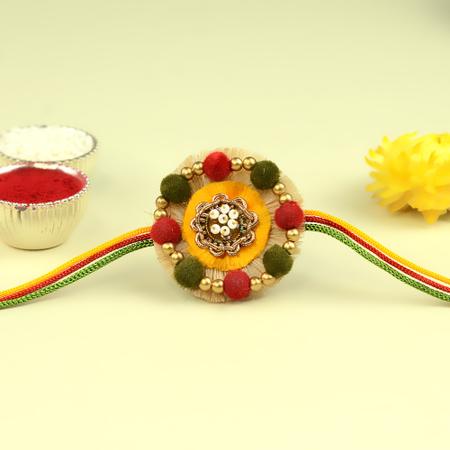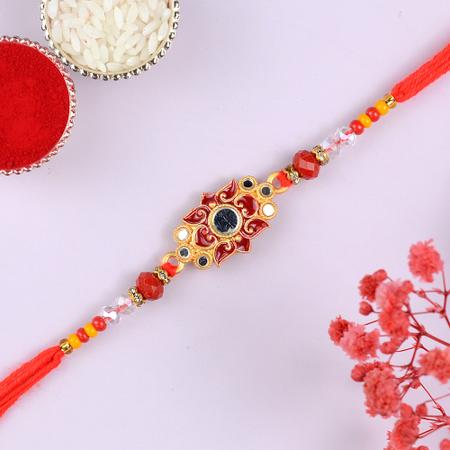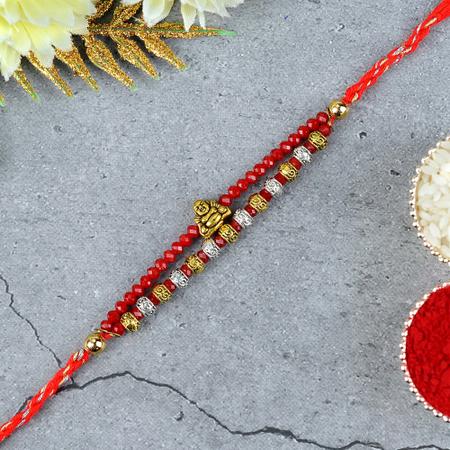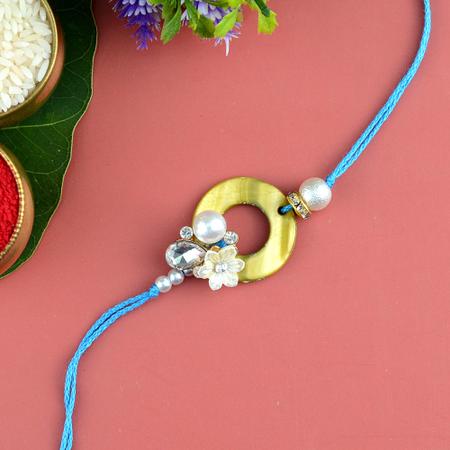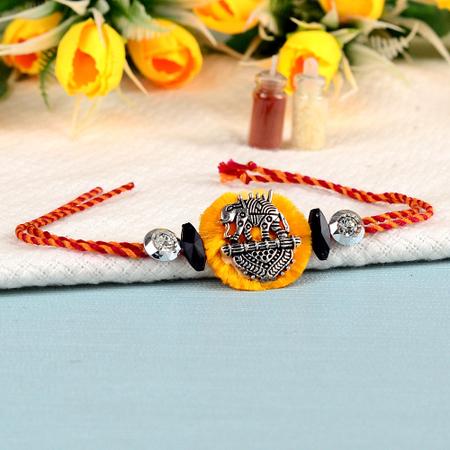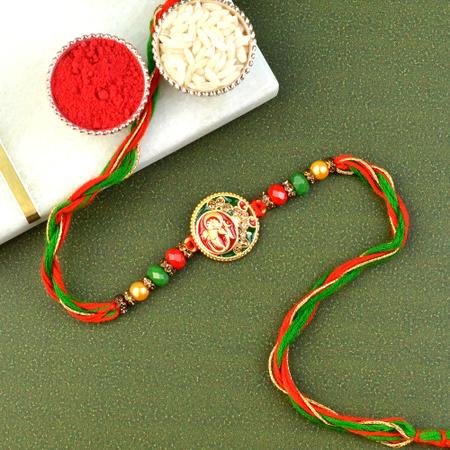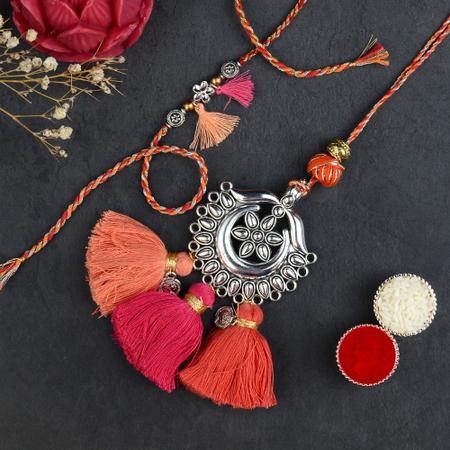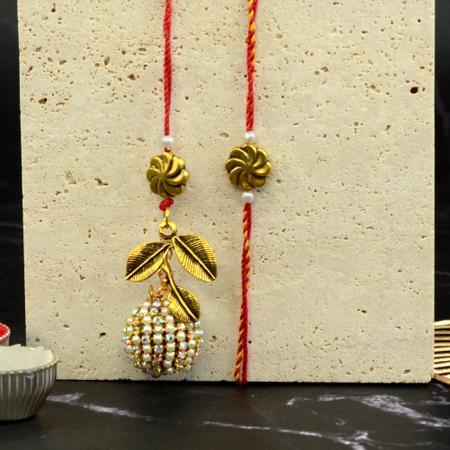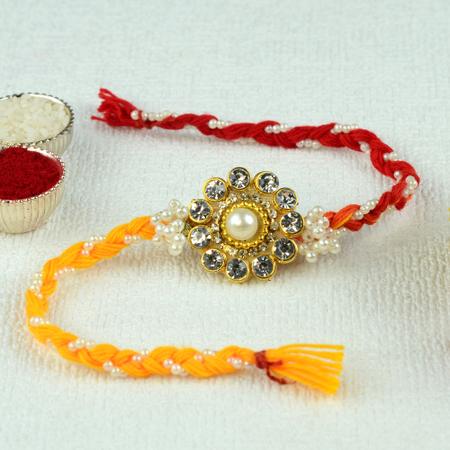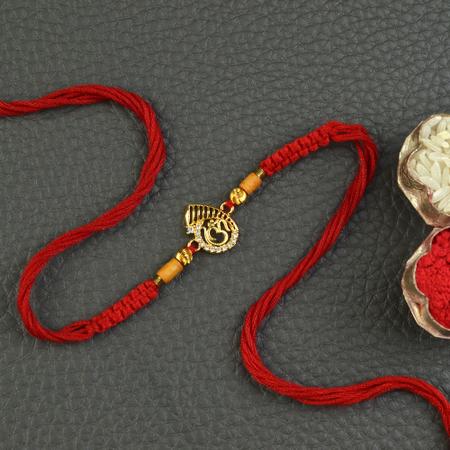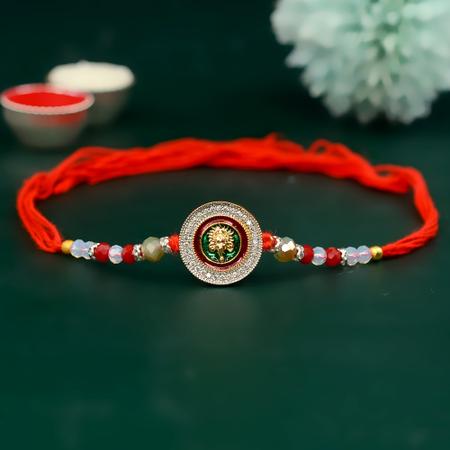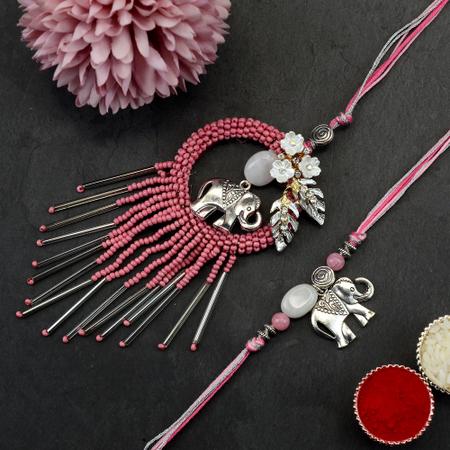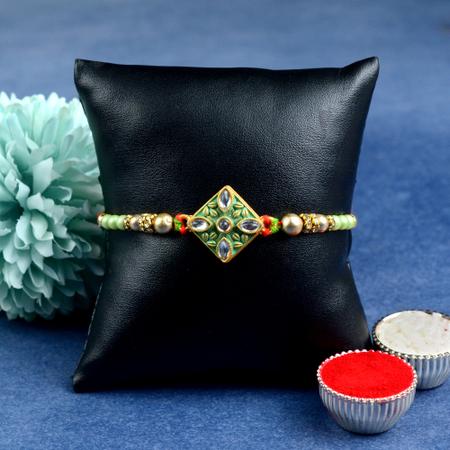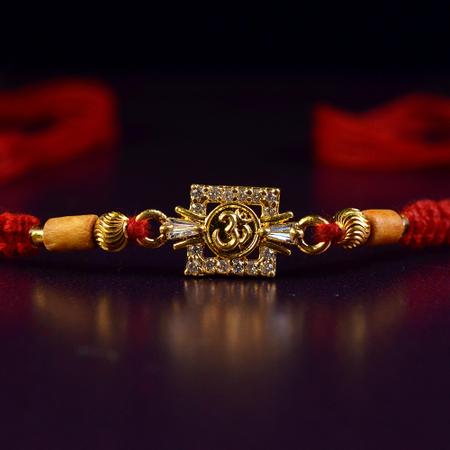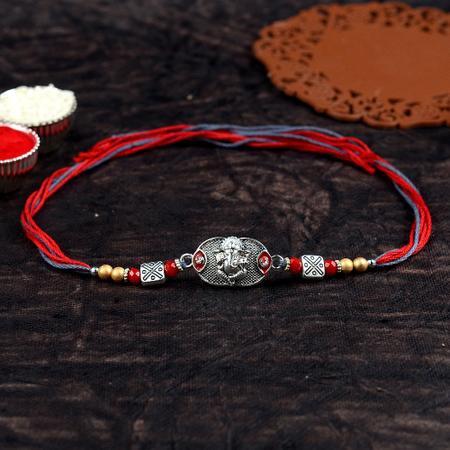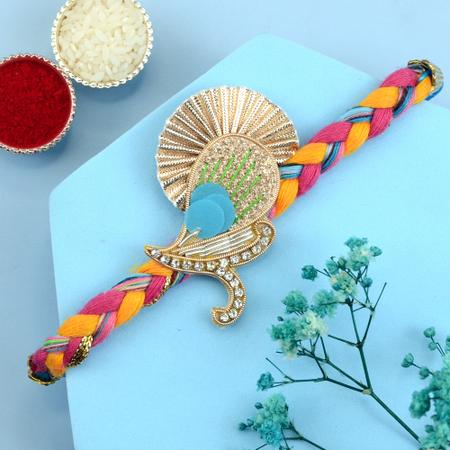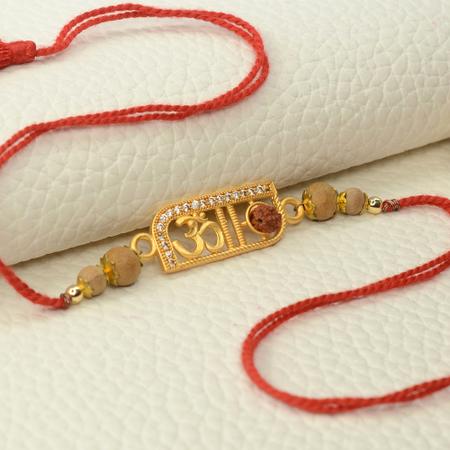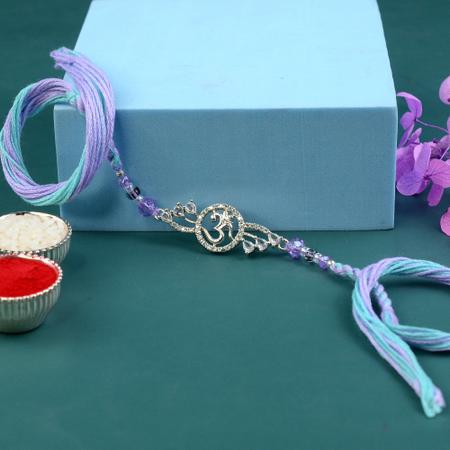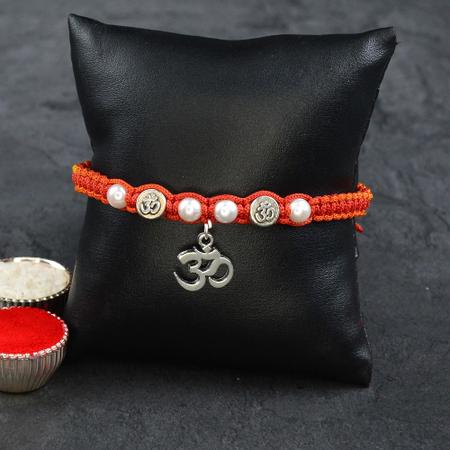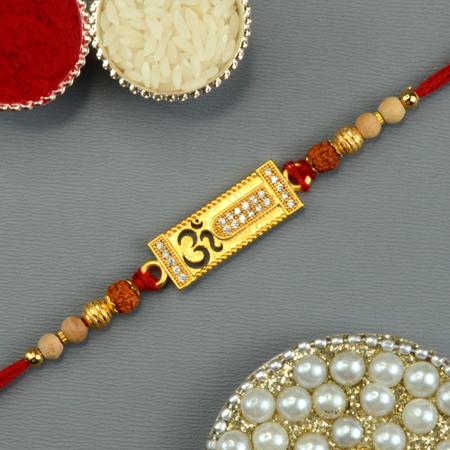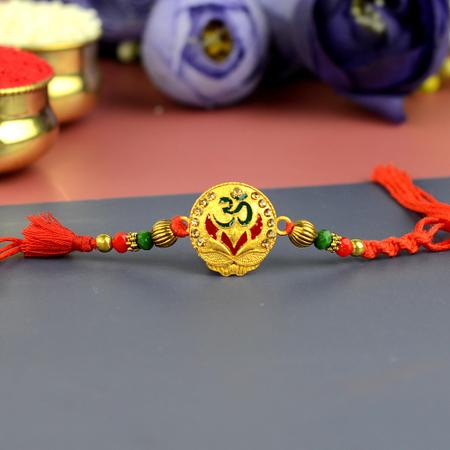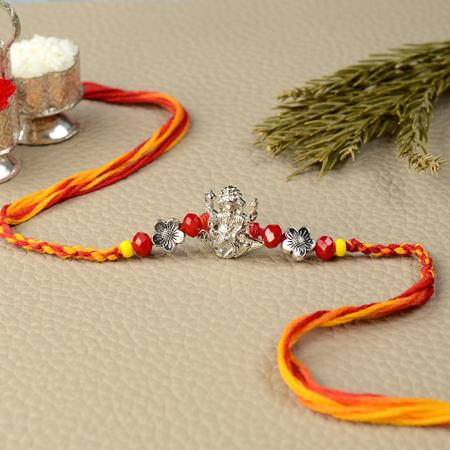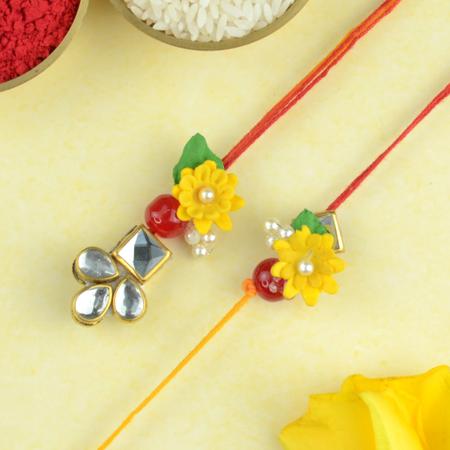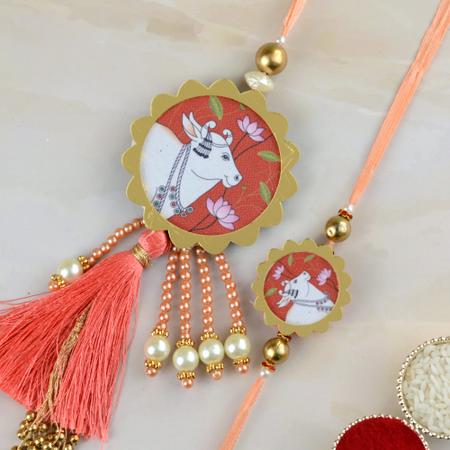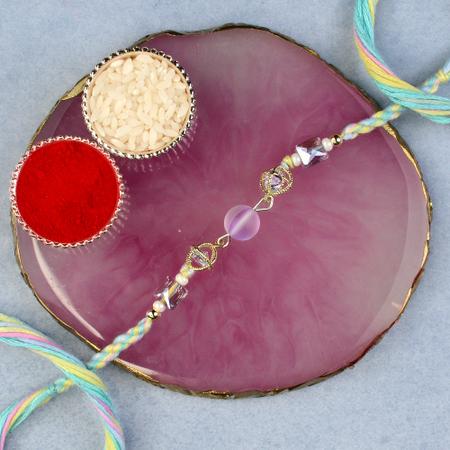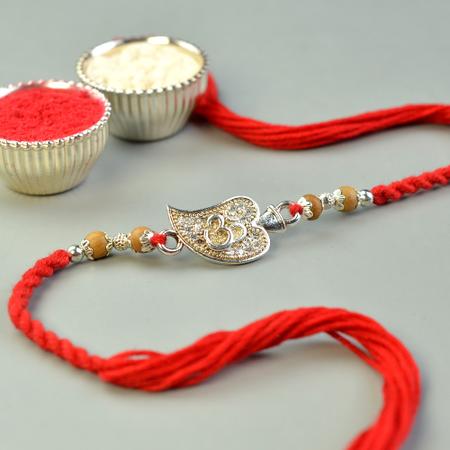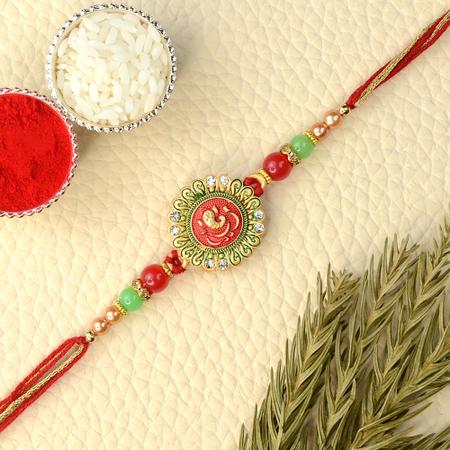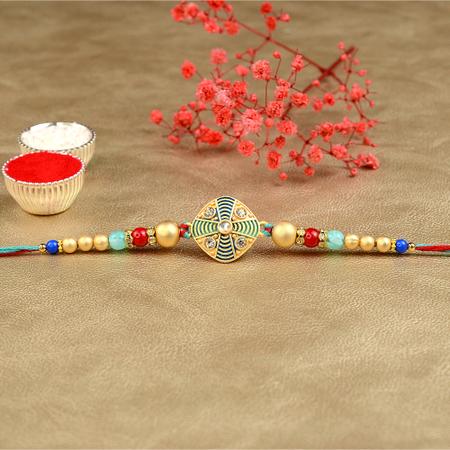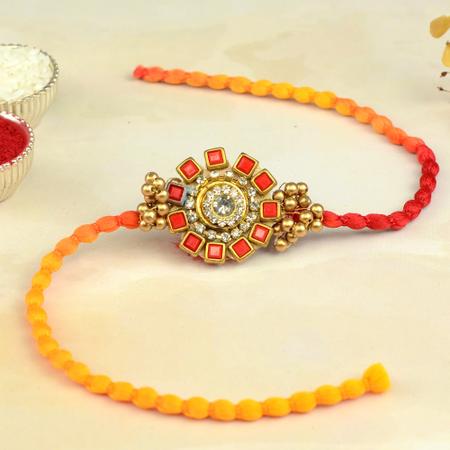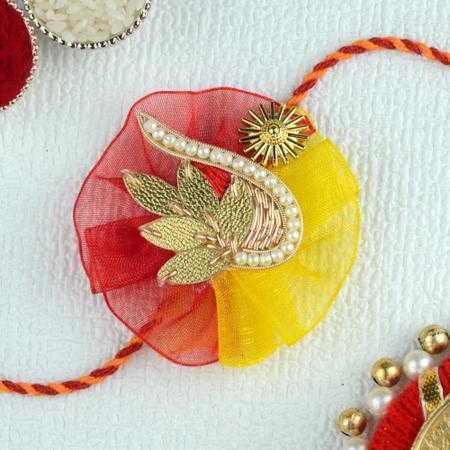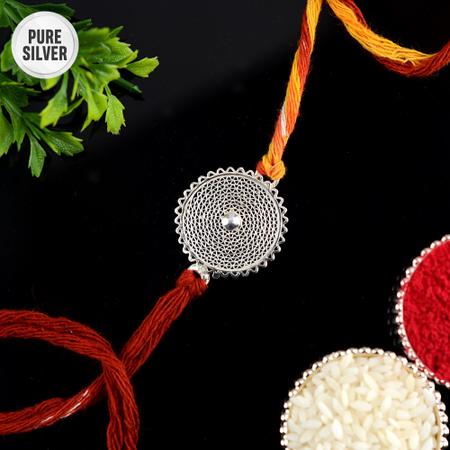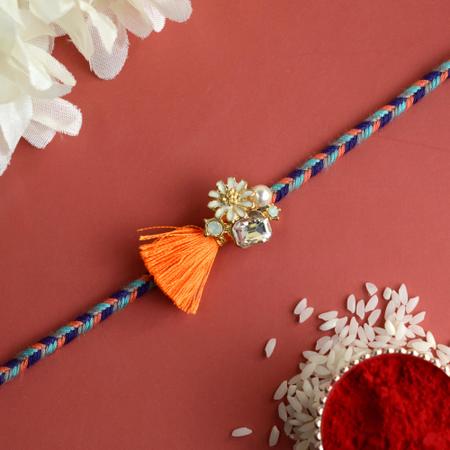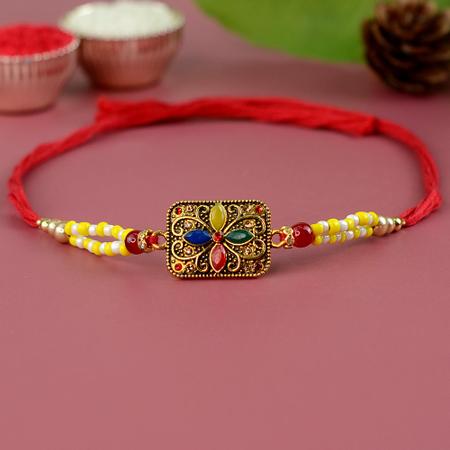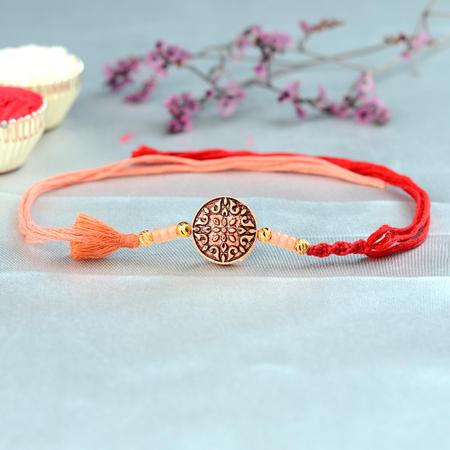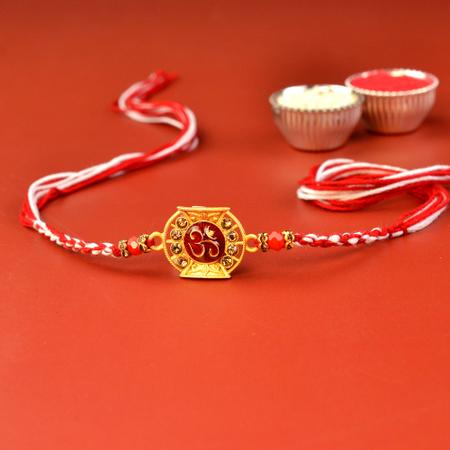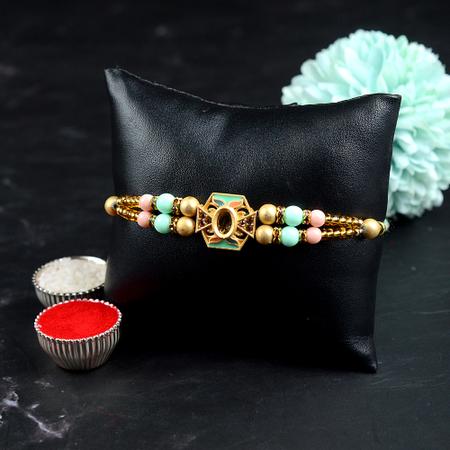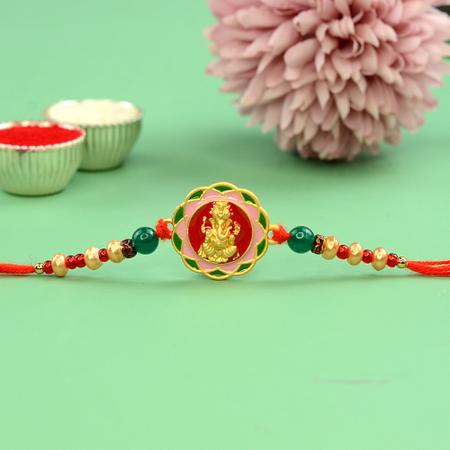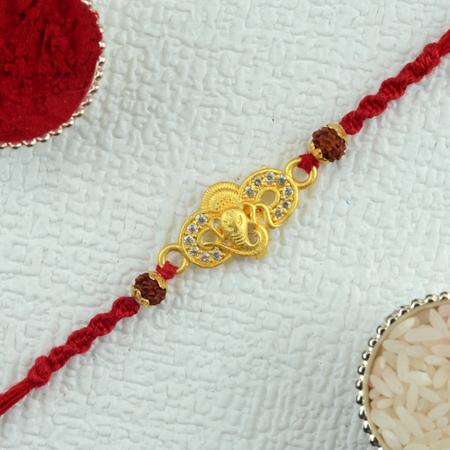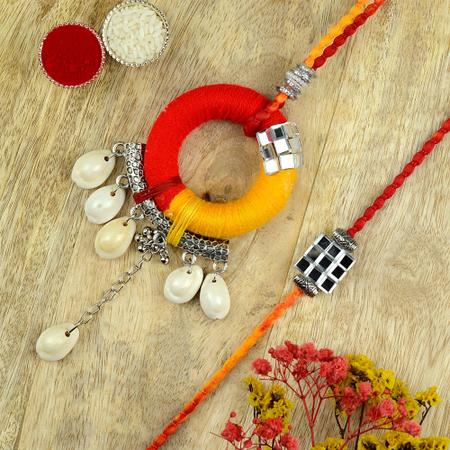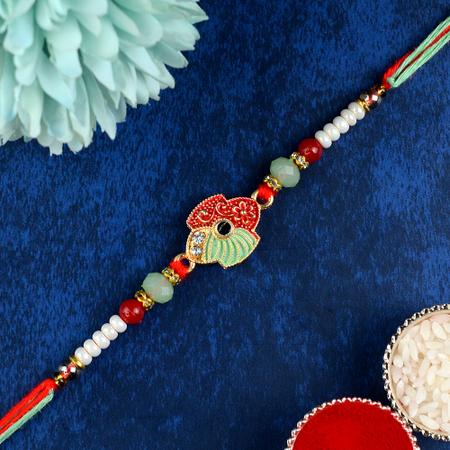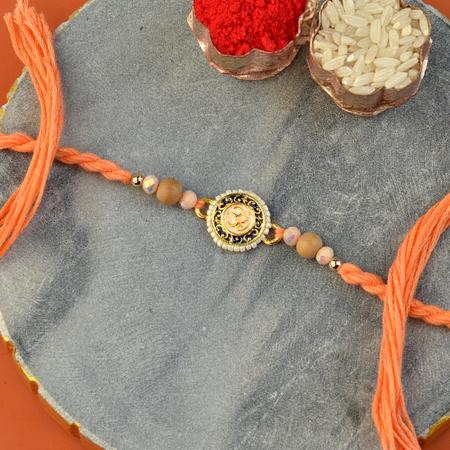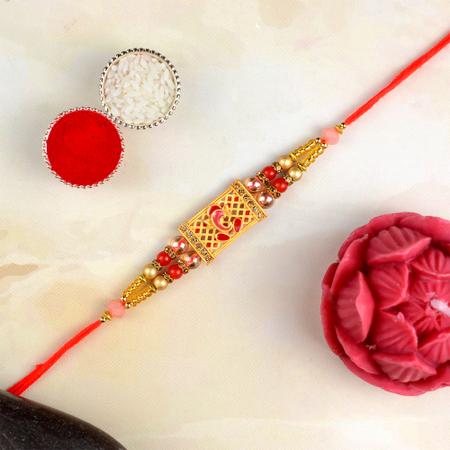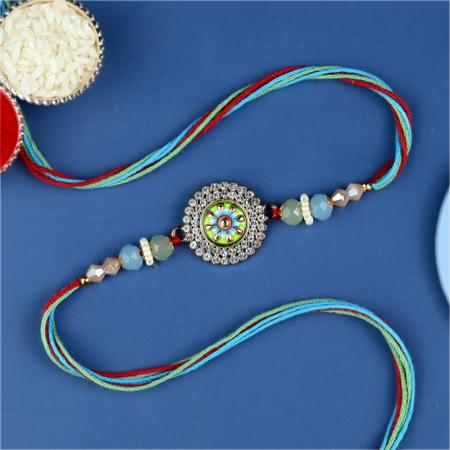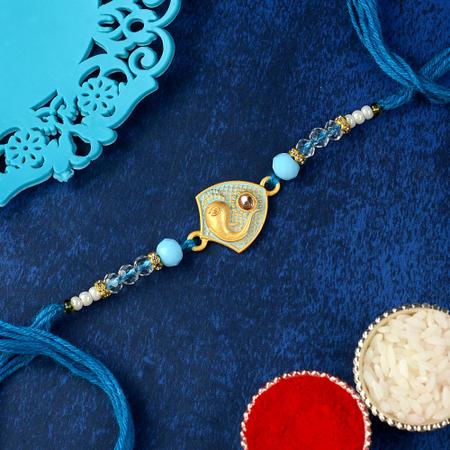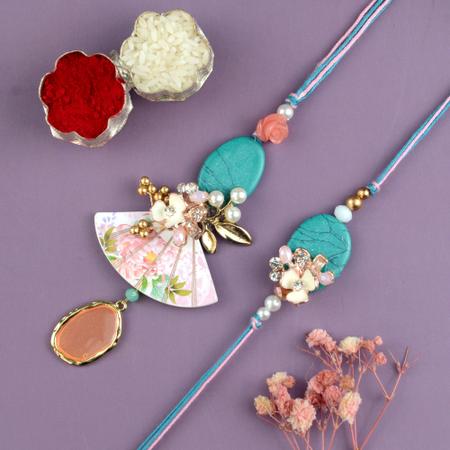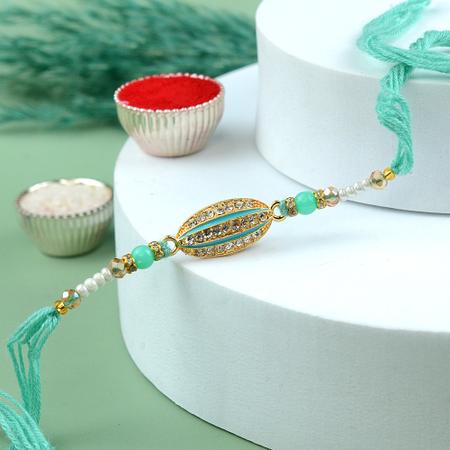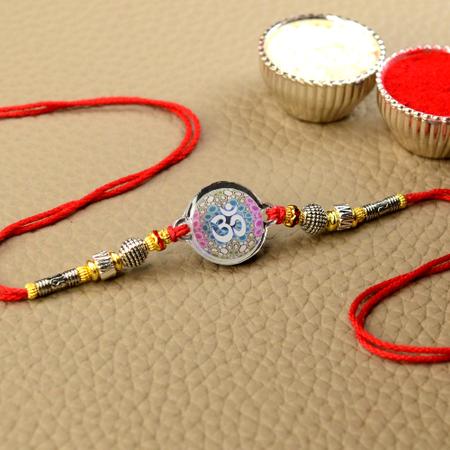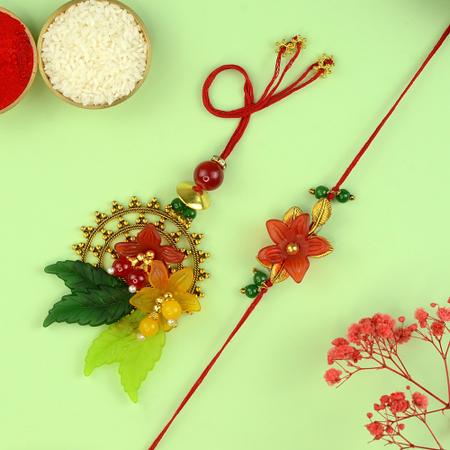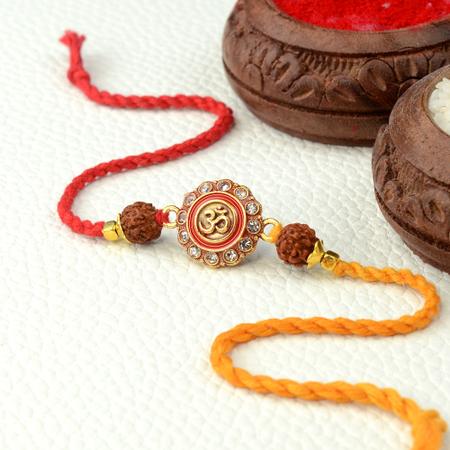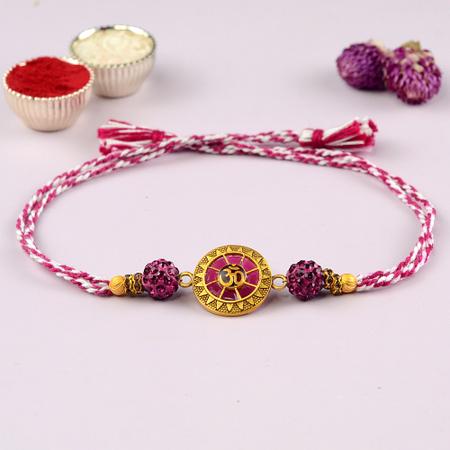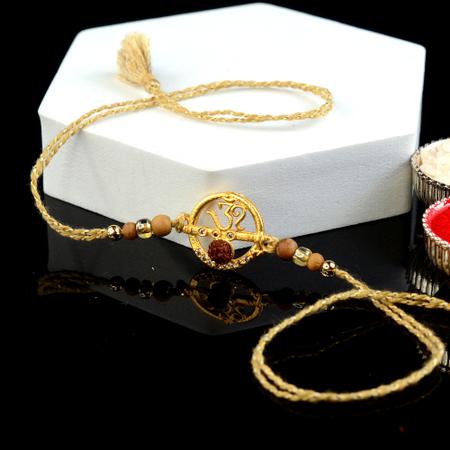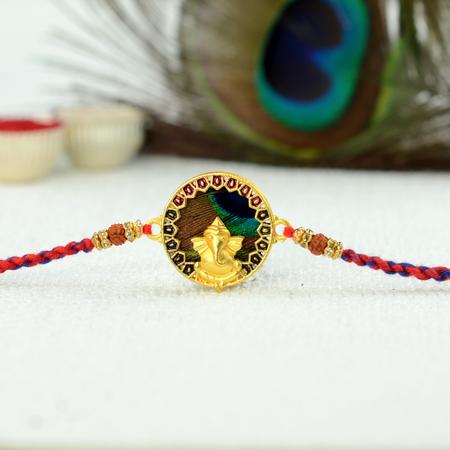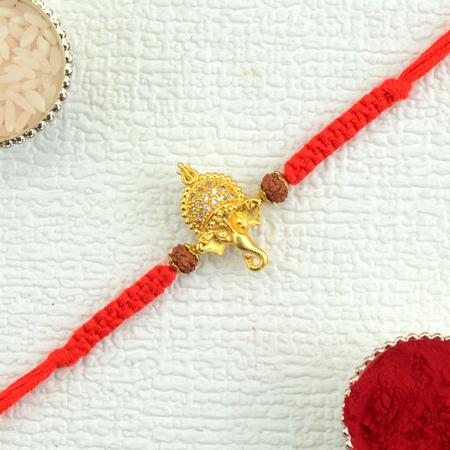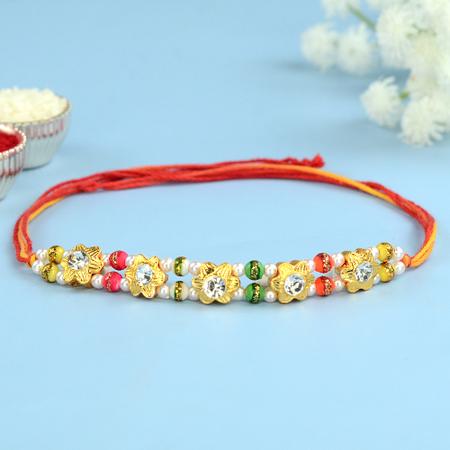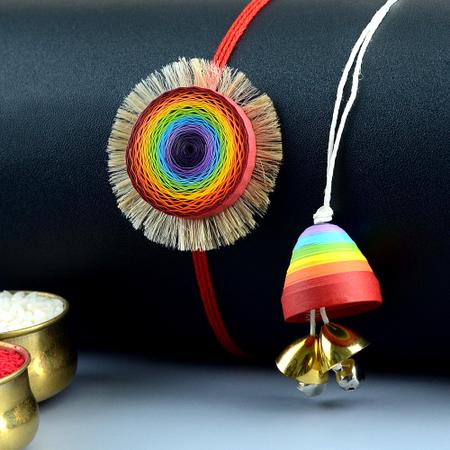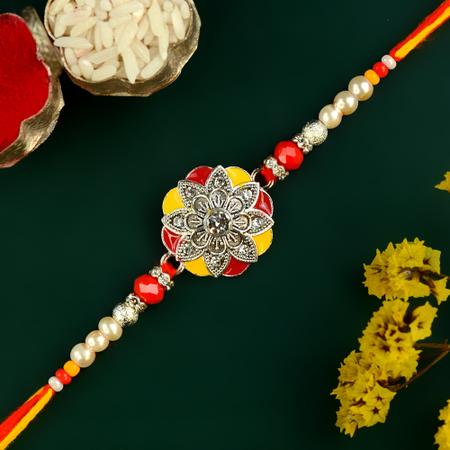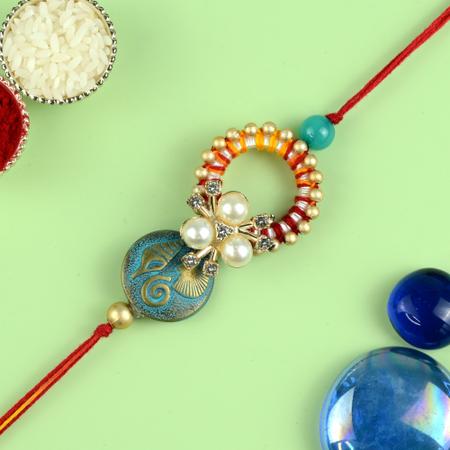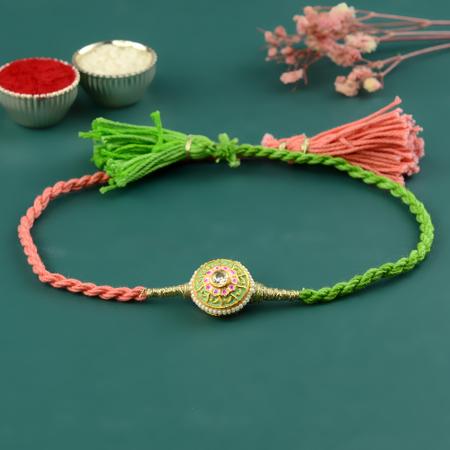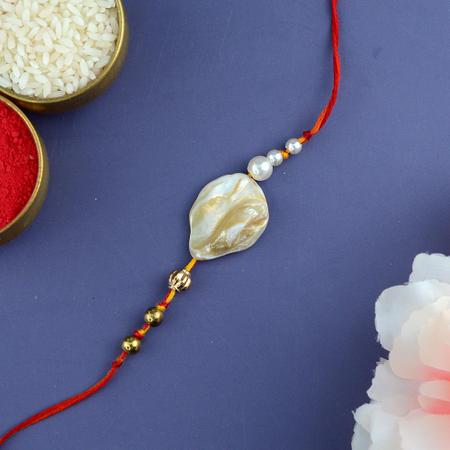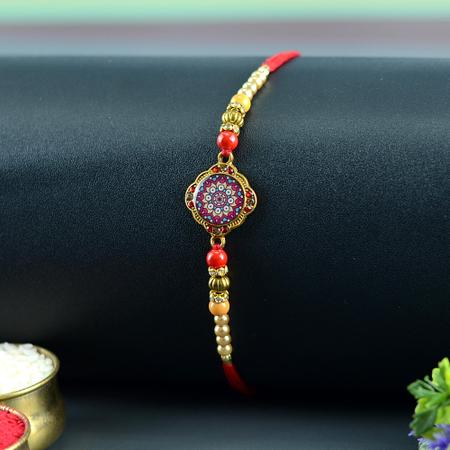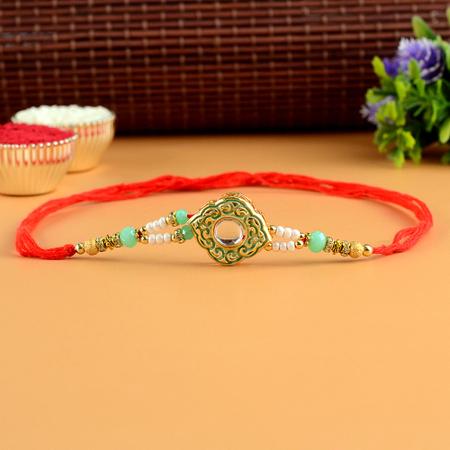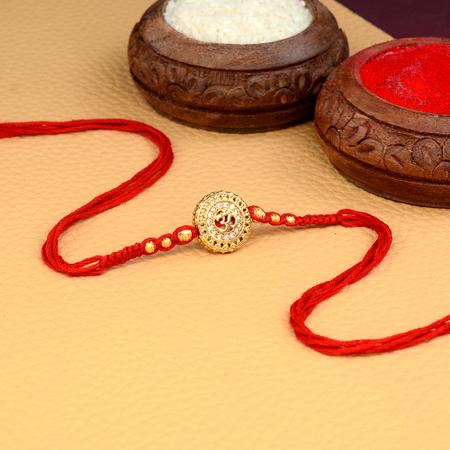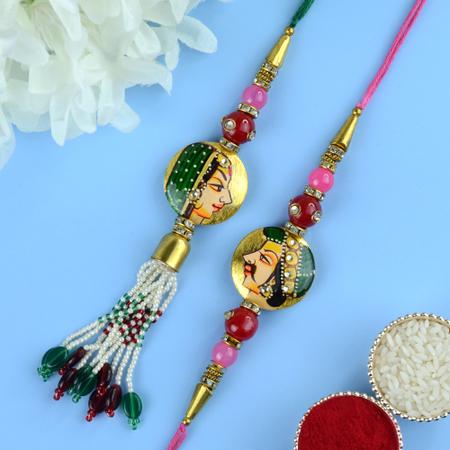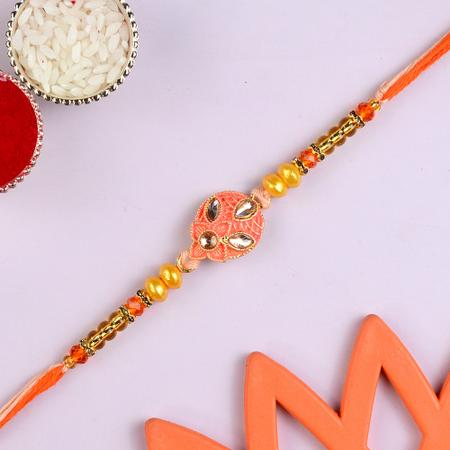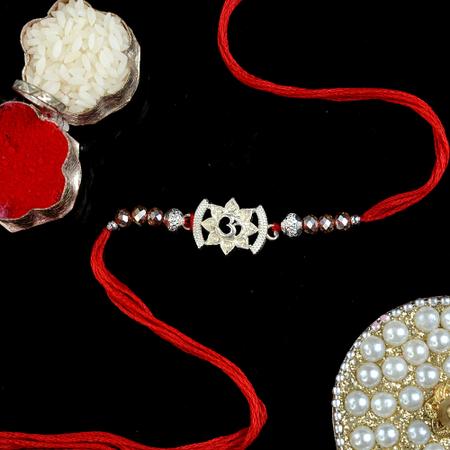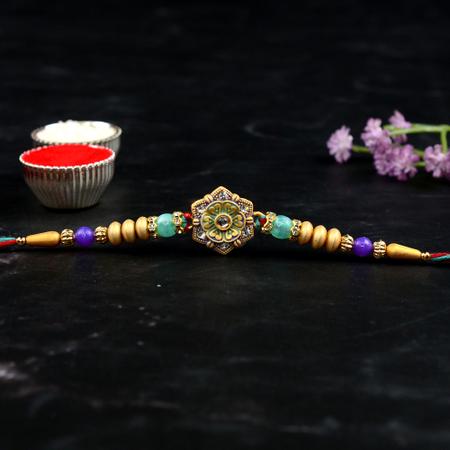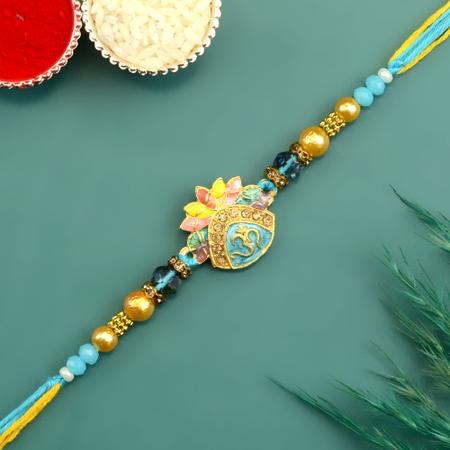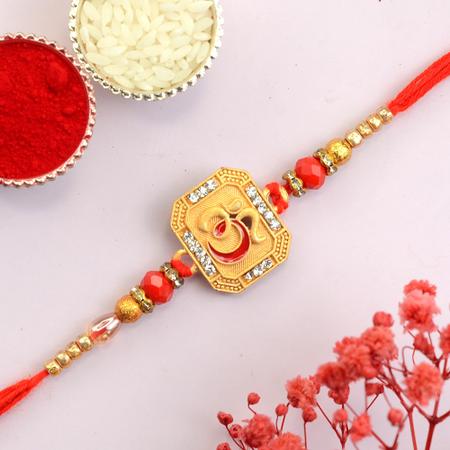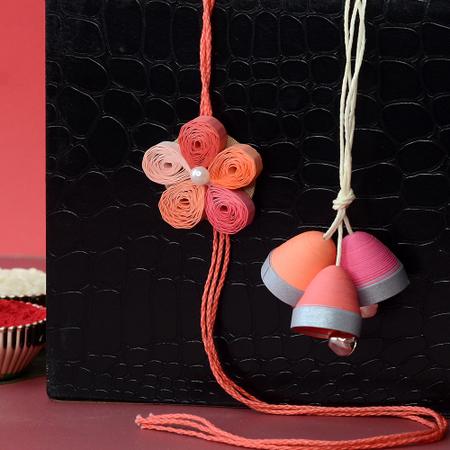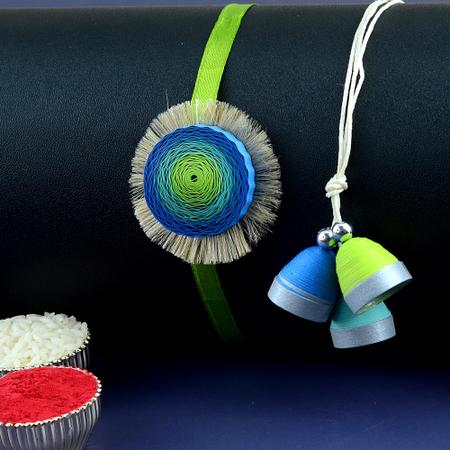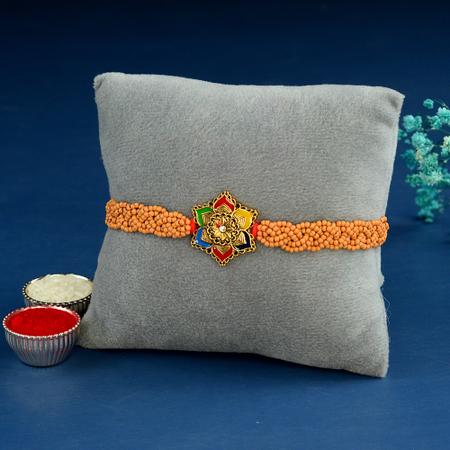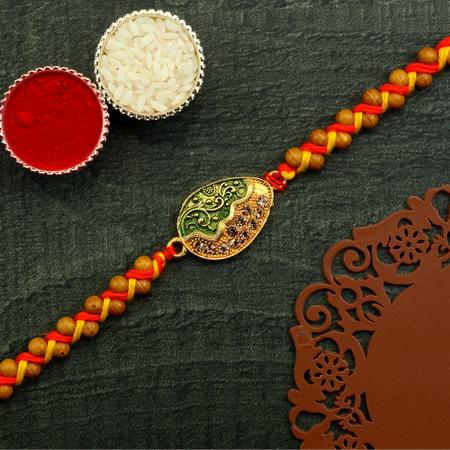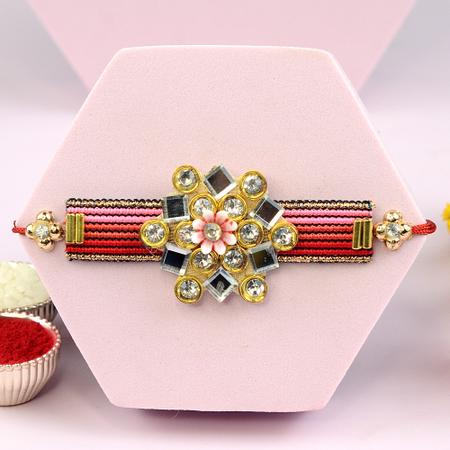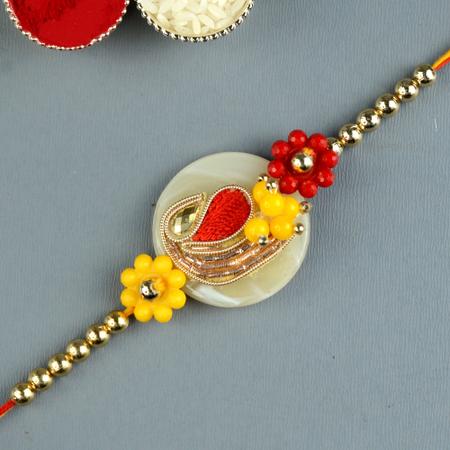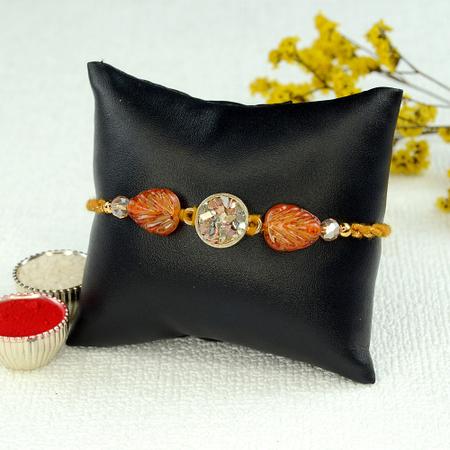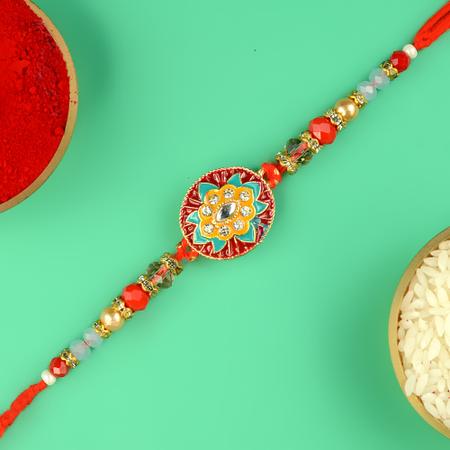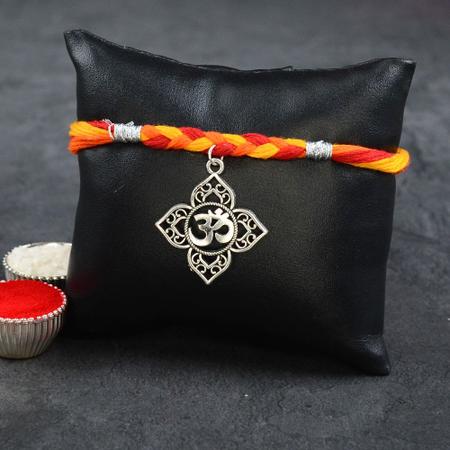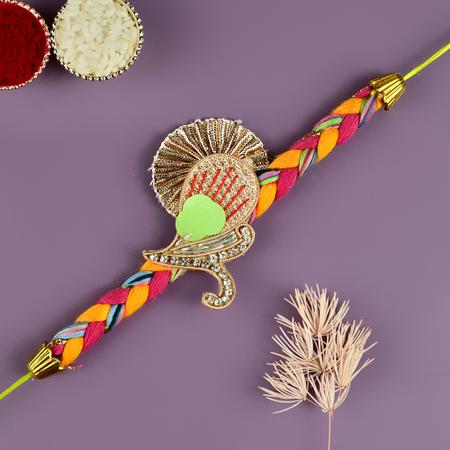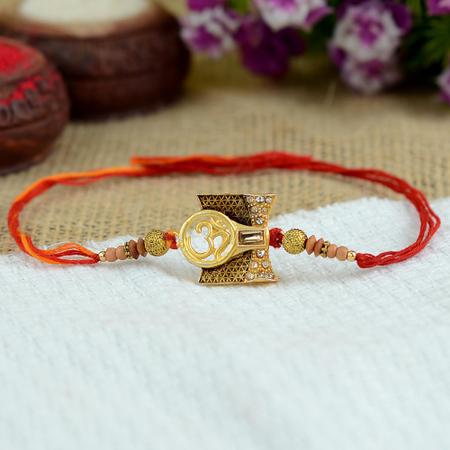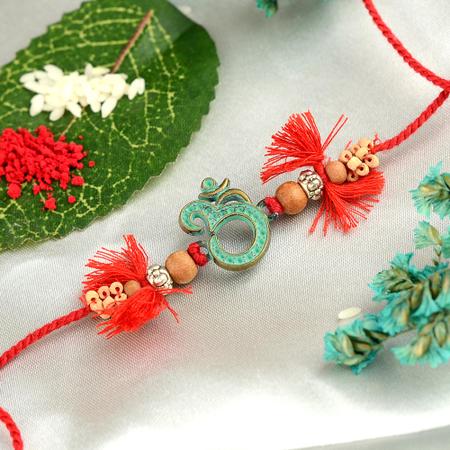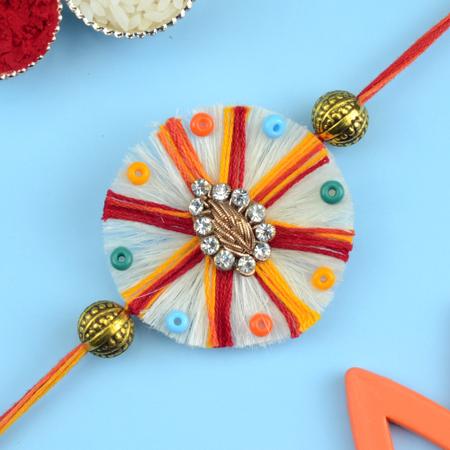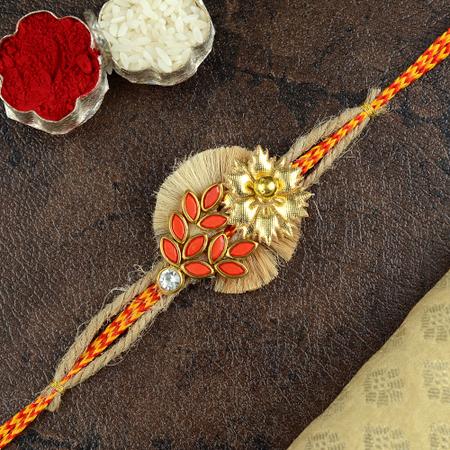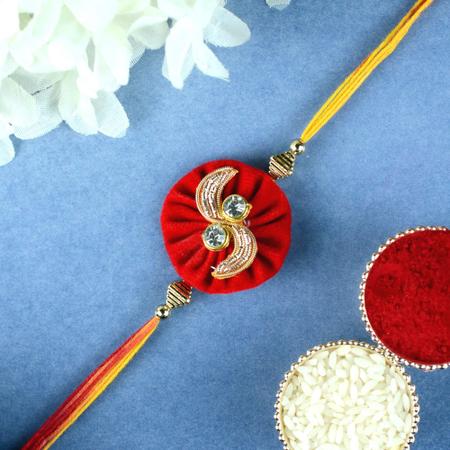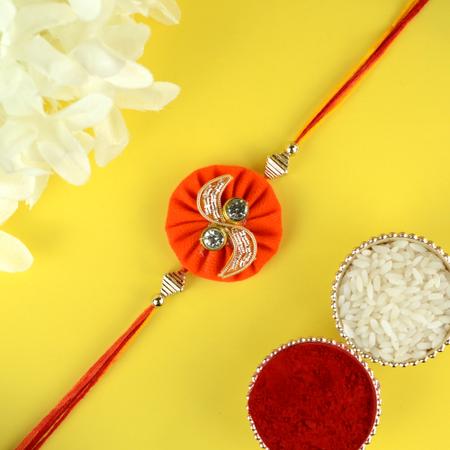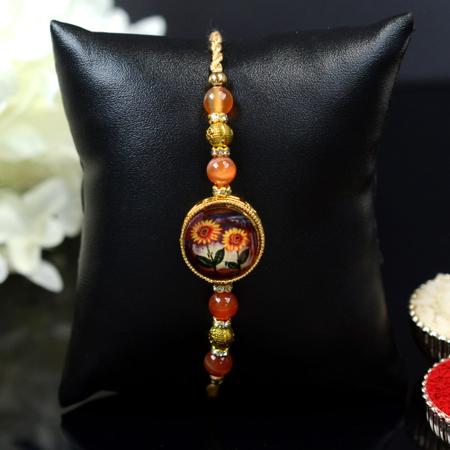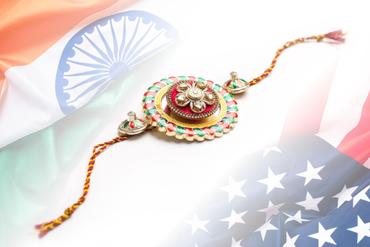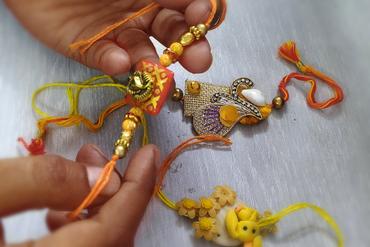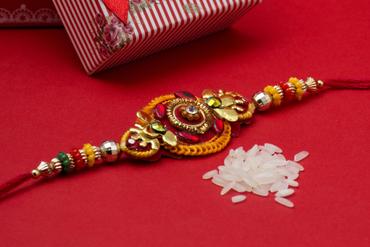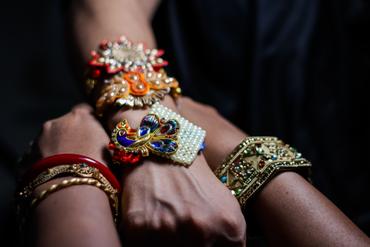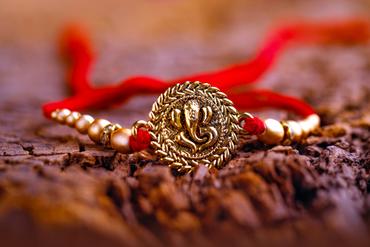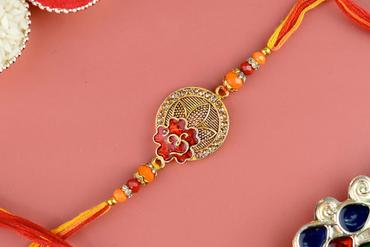Raksha Bandhan or Rakhi is an annual festival that is celebrated on the Purnima of the Hindu lunisolar month of Shravan. This is a celebration of sibling’s love and as such it has attained a highly secular stature among all Indians. It is a sacred thread that ties up the siblings' hearts with an immaculate bond of love and care. The festival of Rakhi salutes the notion of selfless adulation, amity, and heartfelt affection. It is a perfect way of defining the unbreakable bond of the brothers and sisters. With the historical and mythological essence of Raksha Bandhan, the festival is as significant for the siblings as for the traditions. Sisters tie rakhi threads on the hands of their brothers and if they are not around their home, city, or state then they can send online rakhi to India free to their brothers. Distance has never been an obstacle thus, sisters send rakhi to India from foreign lands or another state or city to their brother along with rakhi gift for sister. This is one of the many celebrations when the brothers and sisters shower each other with gifts apart from the tying of the Rakhi thread and promising each other to cherish and protect forever. India is a diverse country that has varied customs and traditions. The festival of Rakhi is celebrated distinctly in its different parts or regions the festival has its distinct name in every region, state, and community. Every community has its set of beliefs and traditions that make it a bit different from the others but the essence of Rakhi remains the same. If you are curious just like us you are at the right place here we will explore the distinct names and the way the day is celebrated. Let’s have a look at a few of such spiritual names of the festival of Rakhi that will help us to understand it better.
While we are on our journey to know the distinct names of the day ‘Raksha Bandhan’ let’s first know what the name of the day itself means. Many like to call it Rakhi as the sacred thread Rakhi is tied around the wrists of brothers, and this is not incorrect. But the actual name of the festival is ‘Raksha Bandhan’. The word “Raksha” means “ to protect” and the word “Bandhan” means bond. Effectively it means the “protection bond”. On the day of “Raksha Bandhan”, the brothers vow that they will protect their sisters from all evil and from difficult times, and in return sisters pray for the long life of their brothers and wish them success in all their endeavors. The festival is celebrated on the day of Shravan Purnima and is celebrated by sisters tying a rakhi on the wrist of their brothers and applying tilak on the forehead of their brothers. The festival has its origin in the Bhavishya Puran. Where Sachi the wife of Indra tied a sacred thread to the wrist of Indra to protect him from the battle against the demon King Bali. From this, Rakhi gets the aspect of the bond of protection and then there are plenty of stories proving the same.
Raksha Bandhan is also known as another renowned name ‘Rakhi Purnima’ in the northwest region of India. The day is celebrated on the auspicious day of the full moon ‘Purnima’ and as the sacred thread of Rakhi is tied hence, the name. Here, it is all about the bond between siblings with the sister performing the various popular Rakhi customs. The sister performs an arti of the brother, applies a tika of roli and chawal on his forehead, and then ties the sacred thread on his wrist. The complete ritual ends on a sweet note with the sister offering sweets to the brother. All these are done while she fasts to complete the traditions of the Rakhi praying for a healthy and prosperous life for her brother.
Rakhi is celebrated on the same day as ‘Nariyal Purnima’ by those living on the Western Ghats in the coastal areas of this country. Hence, it calls for double celebration and the people of Western Ghats first perform the festival of Nariyal Purnima then proceeds to celebrate Rakhi. The fishing community depends on the sea for livelihood and hence people pray to Lord Varuna, the God of the sea, to cast fair winds during the impending monsoon season. They offer nariyal or coconuts to God to appease him as this particular fruit is considered to be an auspicious one, being related to Lord Shiva.
Avani Avittam or Upakramam is the name that is given to Rakhi in the southern regions of India, including Odisha and Maharashtra. The day is observed mainly by the Brahmins of this region who change their holy thread or Janeu. They start their day by immersing themselves in the holy water bodies, asking for forgiveness for the sins they have committed in the preceding years. Then they proceed to assist each other in changing the sacred thread of Janeu. After changing the Janeu the old one is immersed in water. This ceremony symbolizes the new beginning of the Brahmin’s life by restoring knowledge. This festival is celebrated on the very same day as Raksha Bandhan depicting the bond of brotherhood among the Brahmins.
Raksha Bandhan attains the name Kajari Purnima in the central part of the country in states like Madhya Pradesh, Chhattisgarh, and Uttar Pradesh. Celebrated on the very same day this festival here has distinct connotations but the essence of reaching out to the gods remains the same. Farmers worship Goddess Bhagwati on this occasion while praying for a good season of crops. This is also an important occasion for women who have sons. They pray for their son's overall health and prosperity by worshipping crops of barley that are brought from the field.
The festival of Pavitropana is celebrated on this day by the people living in the state of Gujarat. Lord Shiva is worshipped on this occasion and the Shiv Ling everywhere is bathed with water while the people pray for the atonement of their sins. Pavitra or strands of cotton are knotted together and then dipped in Panchagavya or the five holy cow products and then tied around the Shiv Ling. This festival is another auspicious festival celebrated on the very day of Raksha Bandhan hence, the proceedings and the rituals keeps going in the households.
For the people of Orissa, most of their community depends on the cattle they rear for their livelihood. Hence, this auspicious day of Raksha Bandhan is celebrated as Gamha Purnima in Orissa. They decorate and worship their domesticated cows and bullocks at this festival. This is a predominant belief in the Hindu culture that shows the people worshipping the cattle they rear. It is believed that the cattle provide them with milk and livelihood like a mother they worship them and even call as ‘Mata’ which translates to mother. Sweet delicacies called ‘Pithas’ made with coconut and rice paste are made to celebrate the day and spread joy so you can send online rakhi with sweets to India for brother.
The ritual that starts on the Ekadashi concludes on the day of Shravan Purnima, when ‘Raksha Bandhan’ is celebrated. West Bengal celebrates a five-day ritual of Jhulan Purnima in which Lord Krishna and Radha are swung on a swing ‘Jhula’ hence the name Jhulan Purnima. The swing is decorated with flowers and sweets are offered to the idols. This day concludes with the celebration of Jhulan Purnima and Raksha Bandhan together. Those who tie Rakhi to Lord Krishna who is often associated with the festival end the Jhulan Purnima ritual by tying Rakhi to him. Every temple decks itself and prepares well to celebrate the day well. But the major celebration takes place in the ISKON temple of Mayapur.
You may have heard this name but may not know its significance. The Rajasthani and Marwari community believes that the bond of the brother is indeed unique and unbreakable. But it is incomplete if you cherish your brother and not the sister-in-law if your brother is married. As the wife is said to be the ‘Arghangini’ the better half without cherishing her the ritual will not be complete. So, the sisters tie a Lumba Rakhi on the hand of the sister-in-law and complete the Rakhi rituals. This binds the sister and the sister-in-law with a unique bond just like it does with the brother. Thus, a wonderful and heartwarming ceremony that creates harmony in the family and relations so lose no opportunity to send rakhi gift for brother.
Lateral distances created by national boundaries are no more a hindrance to the flow of emotions and tranquil feelings. It's very easy to transmit heartfelt feelings in any corner of the world within a few moments. Even if your brother is separated from his native roots by the contemporary pace of time, it's no more a problem to actualize your ardent urge. The elegance of the occasion may be redefined by the ultramodern touch of the festivity. Though the attitude of celebrating the auspicious juncture has witnessed a rapid diversification still the prosperity and plenteousness of the festival have been preserved by its traditional values. Although earlier, Raksha Bandhan was celebrated only between brothers and sisters, in today’s time it has gone beyond brothers and sisters. It is celebrated among relatives of extended families; some also tie rakhi to their neighbors for peaceful co-existence. The concept of Raksha Bandhan was deftly used by Rabindranath Tagore to instill a feeling of unity among all members of society to lead a peaceful social life. So, send rakhi hampers to India from the USA to members of extended family or anyone from your neighborhood and strengthen the relationship.
